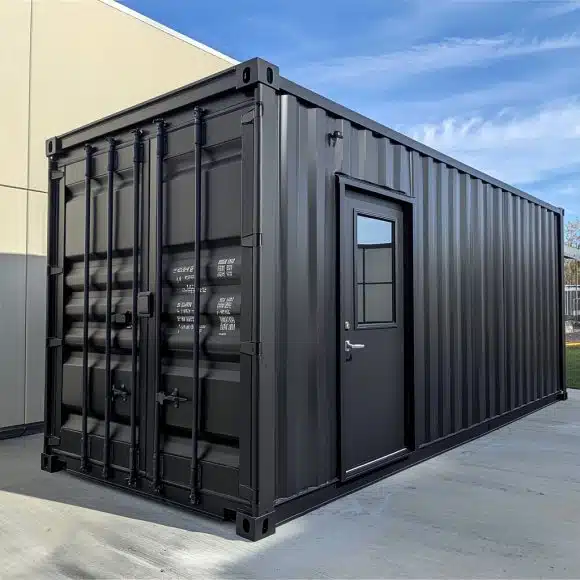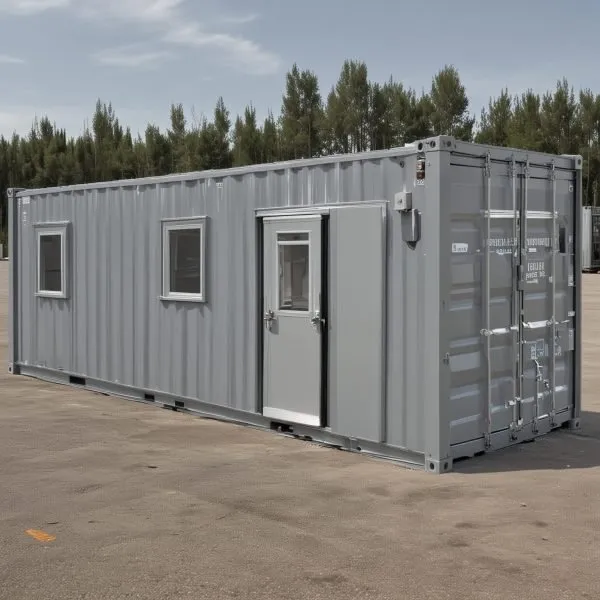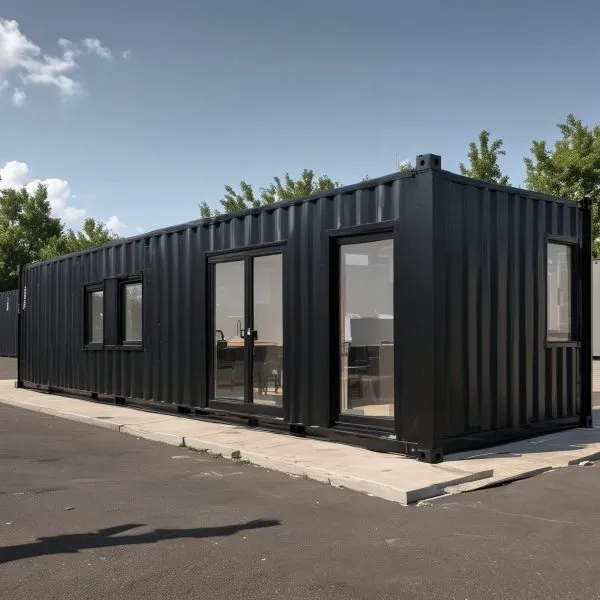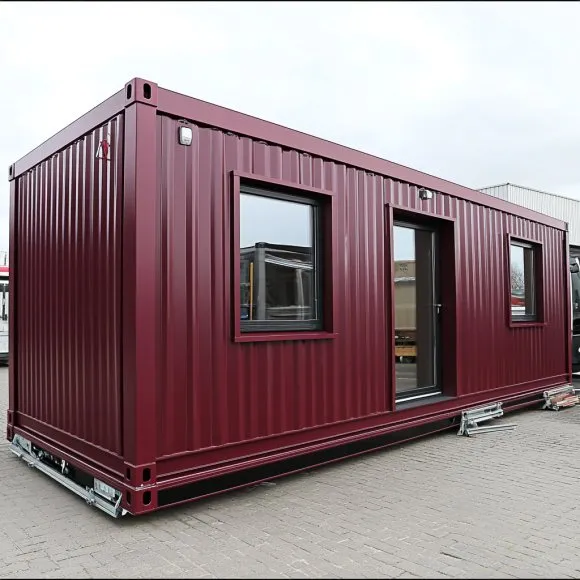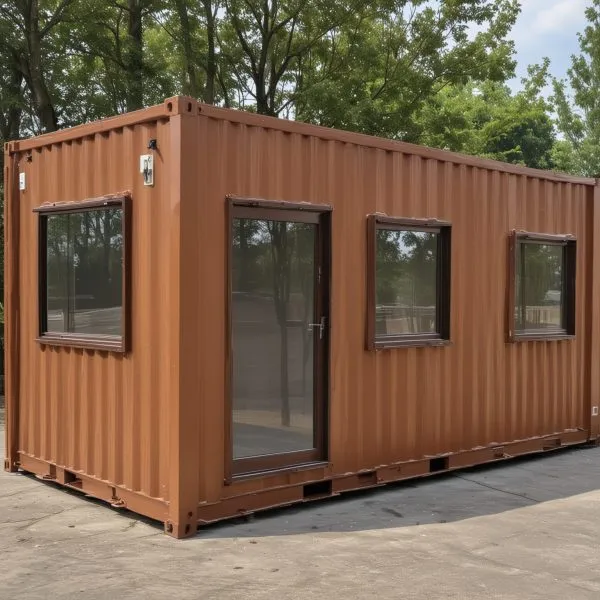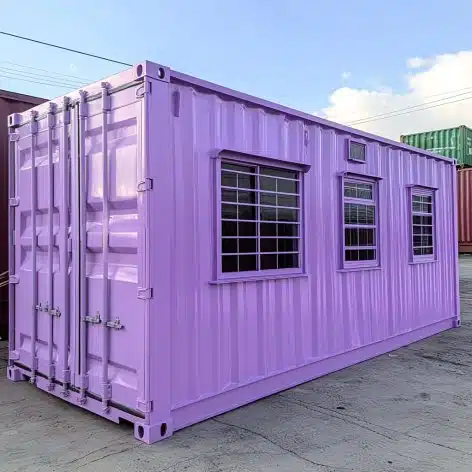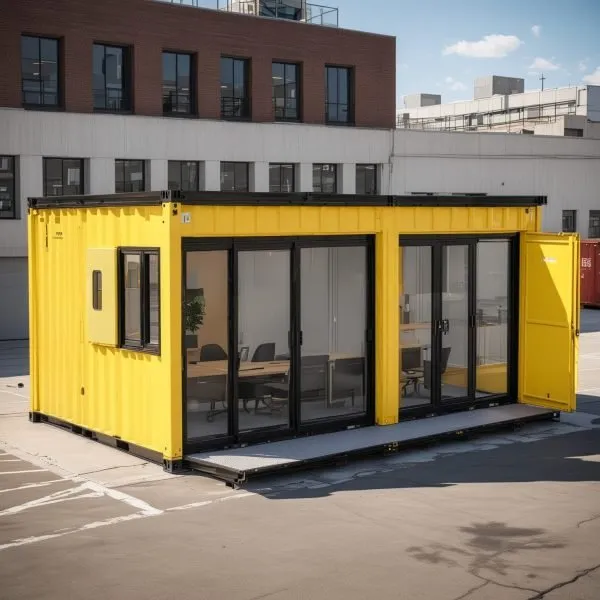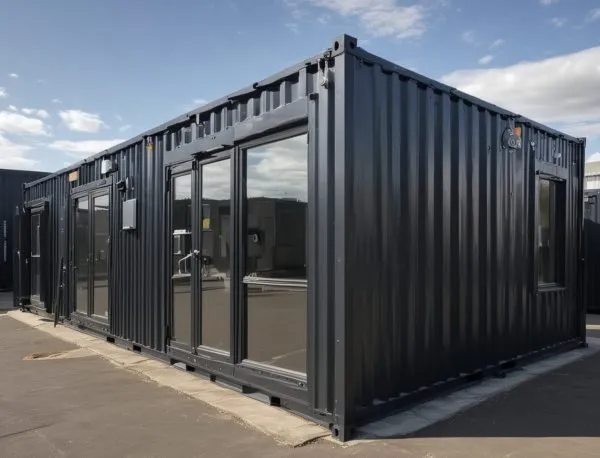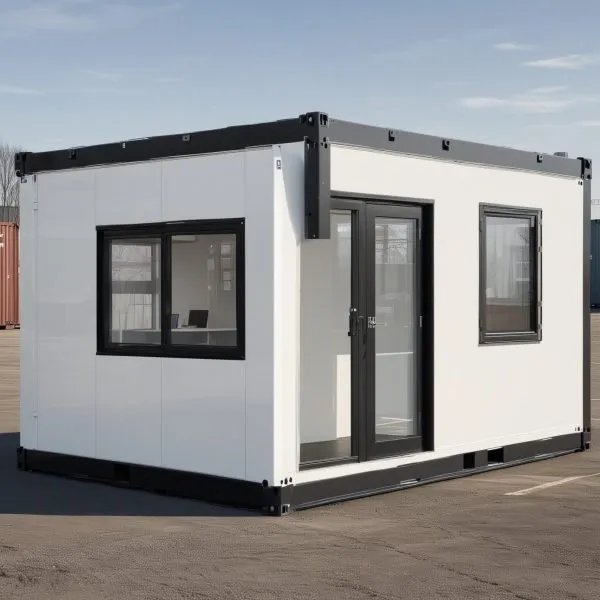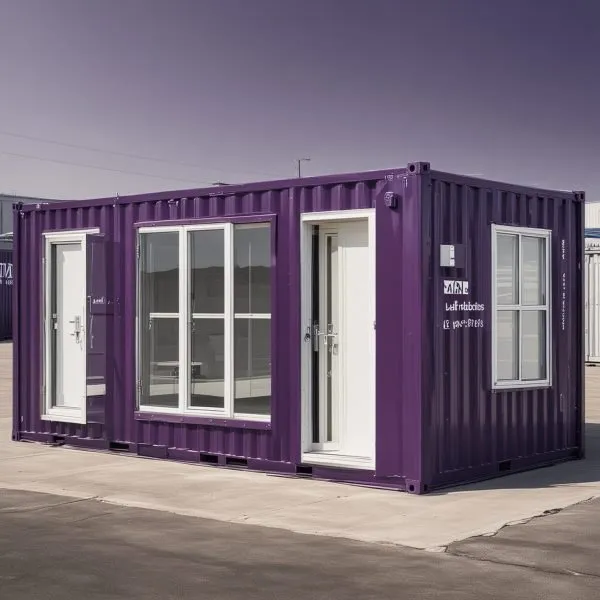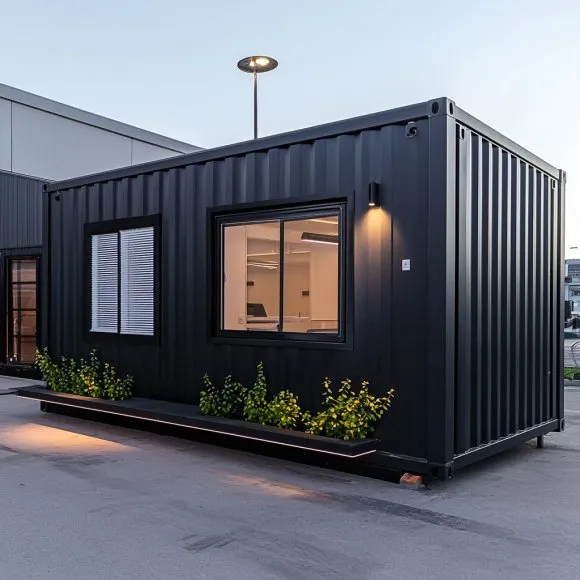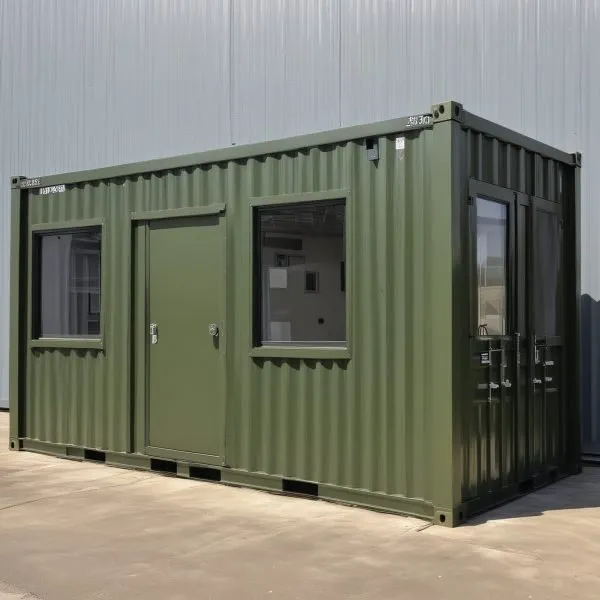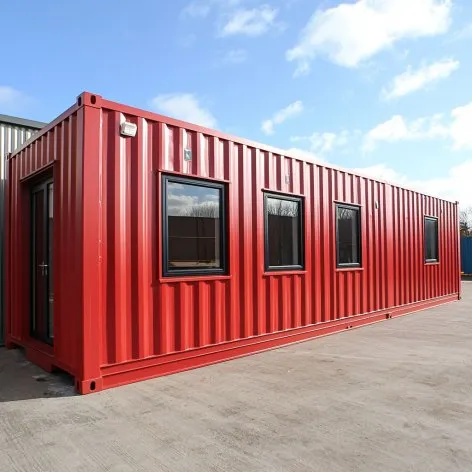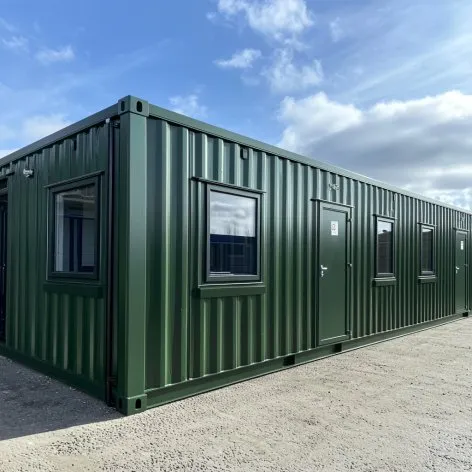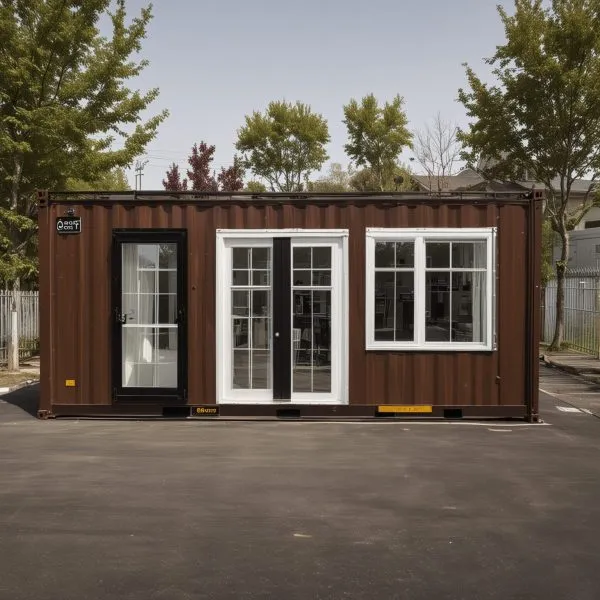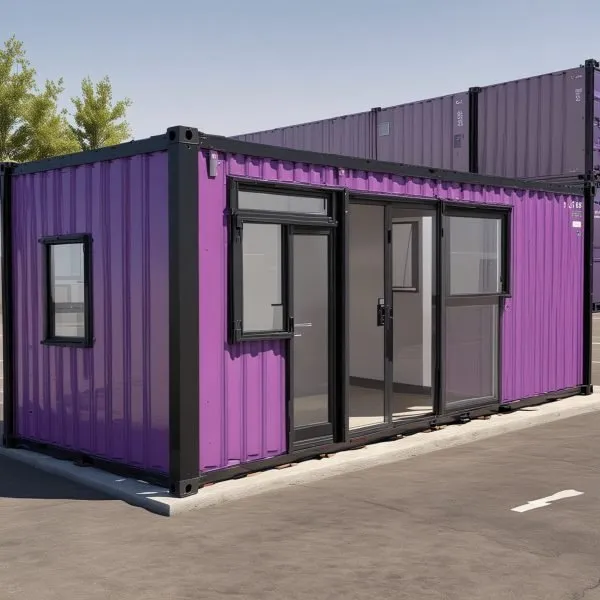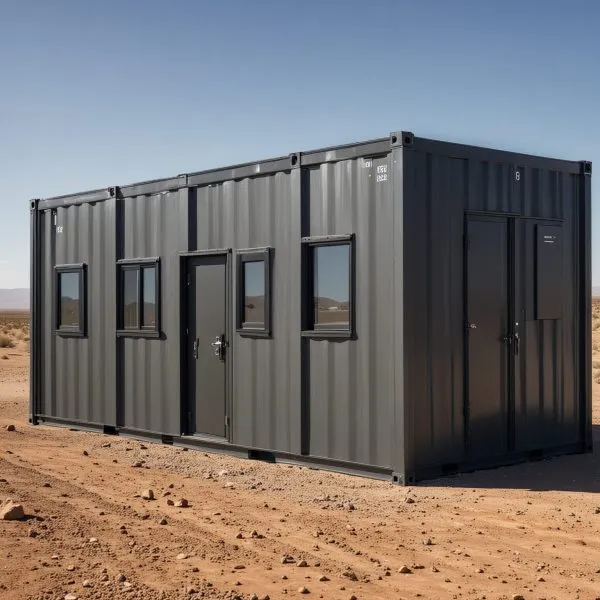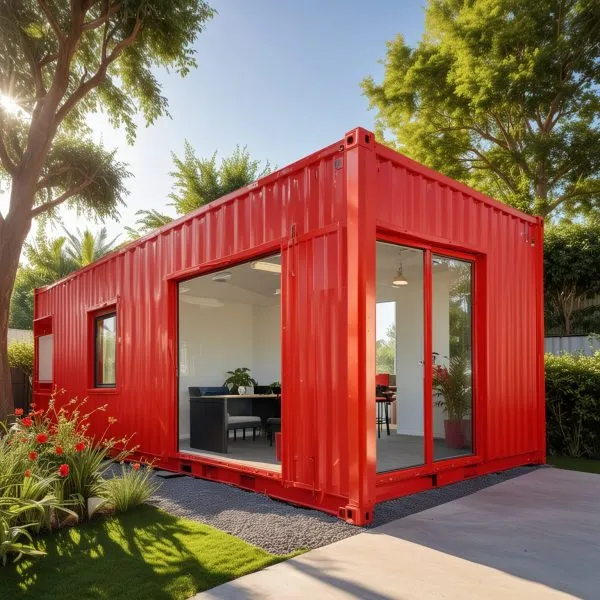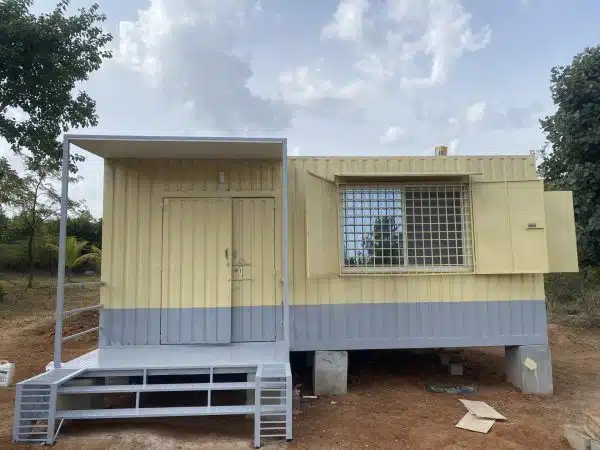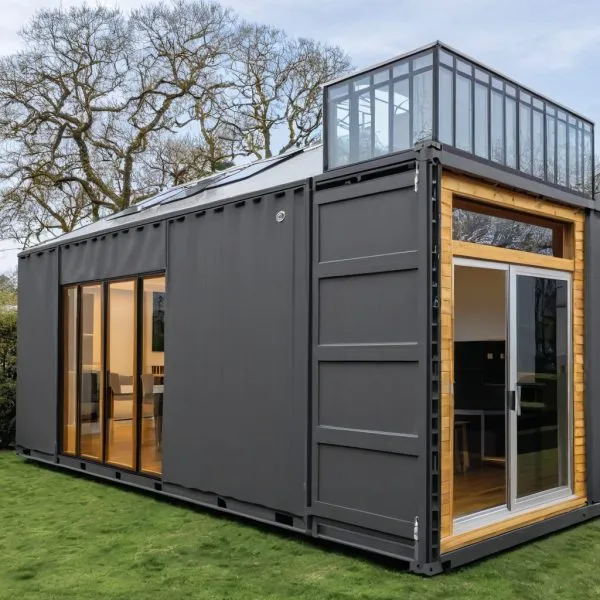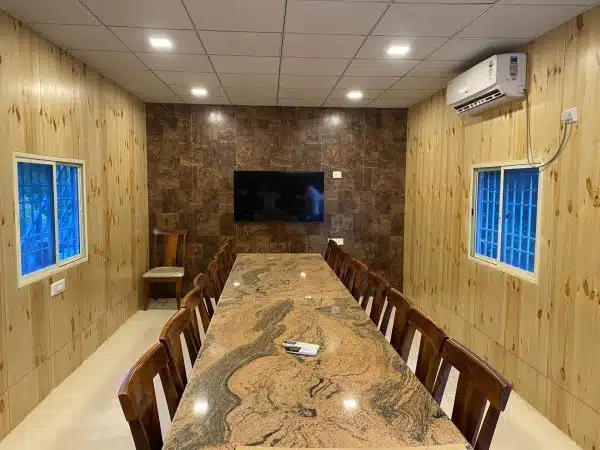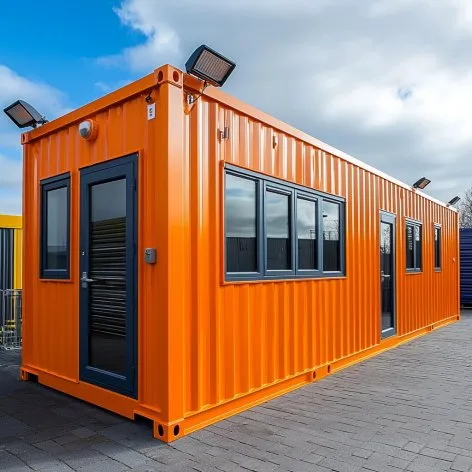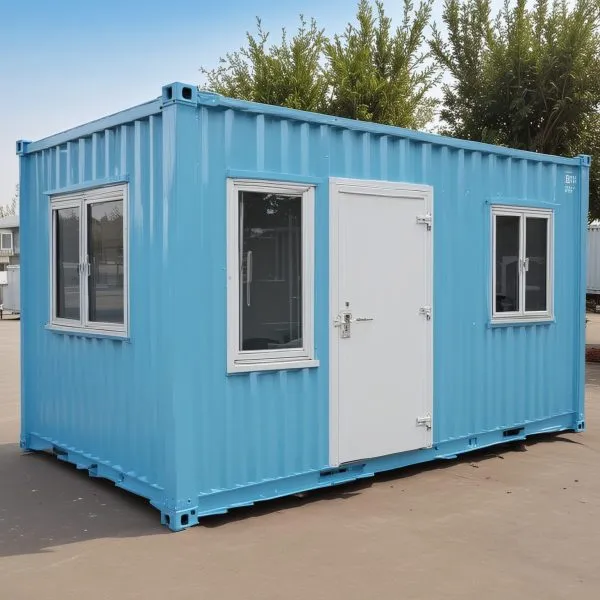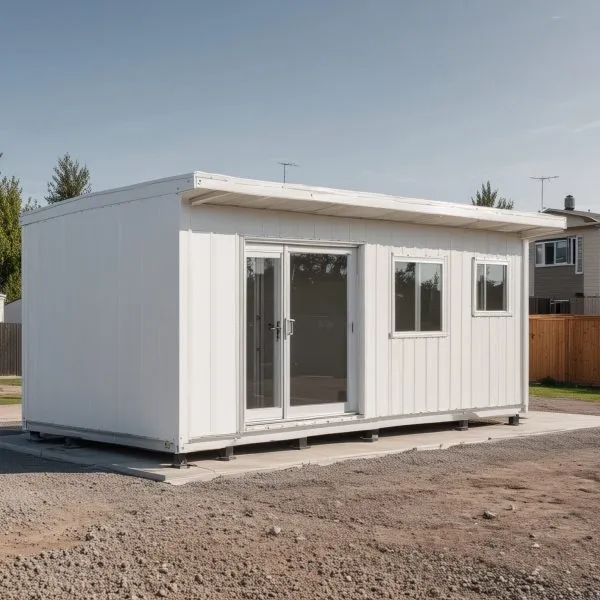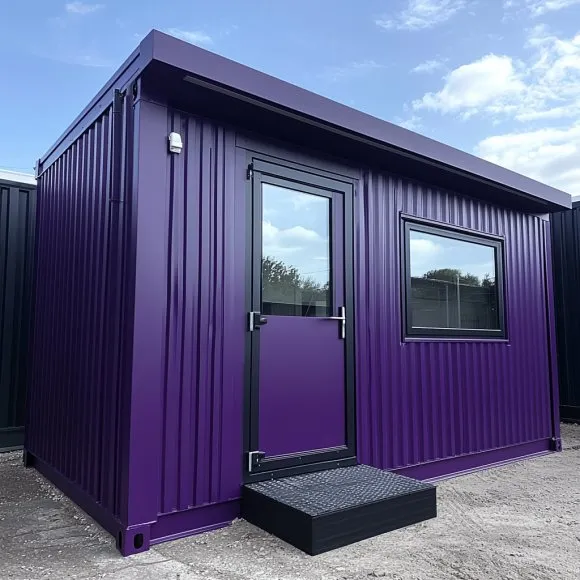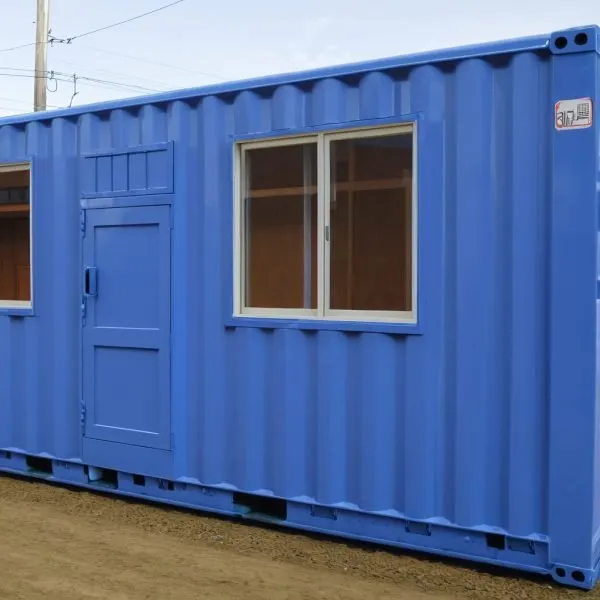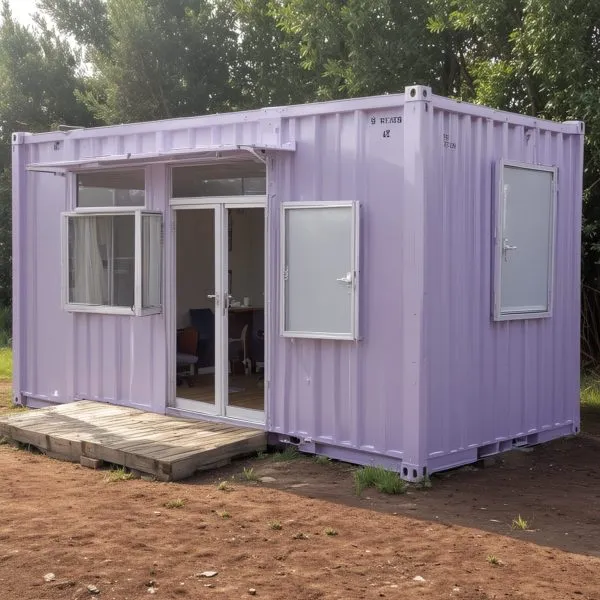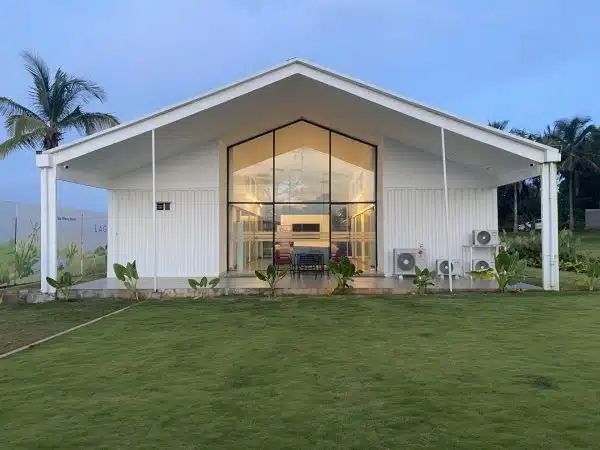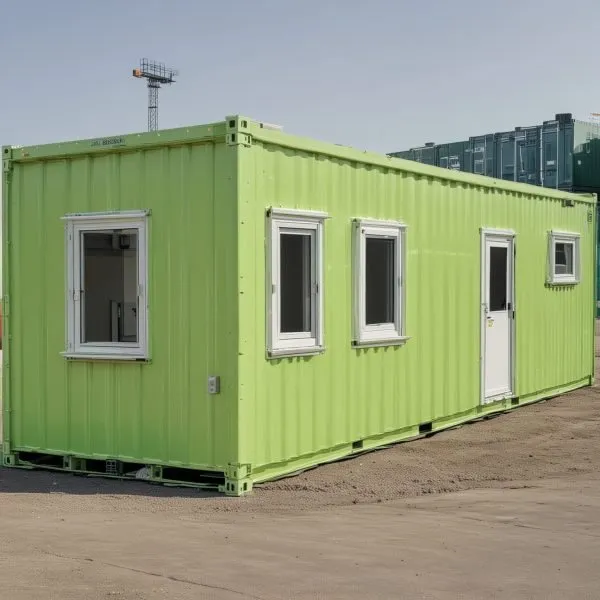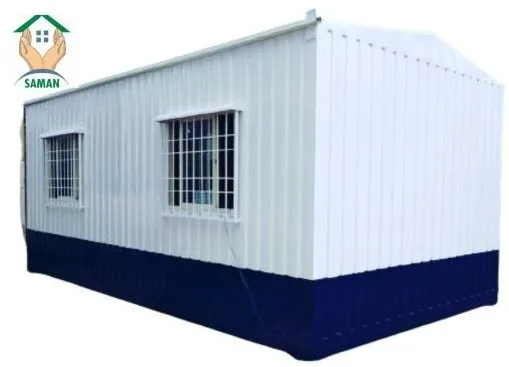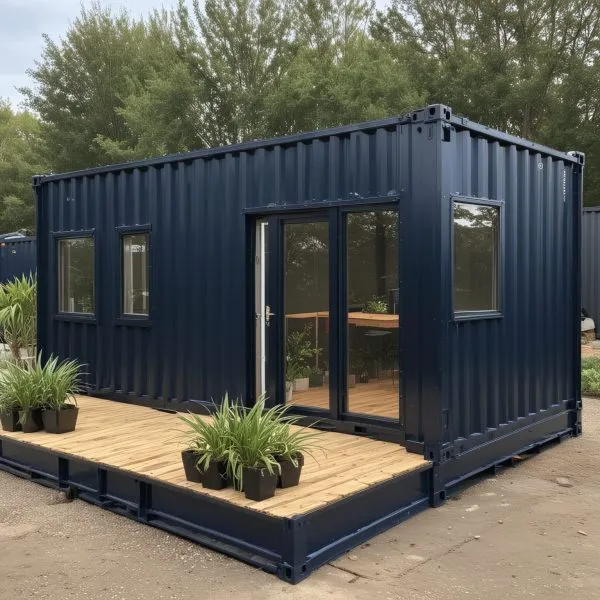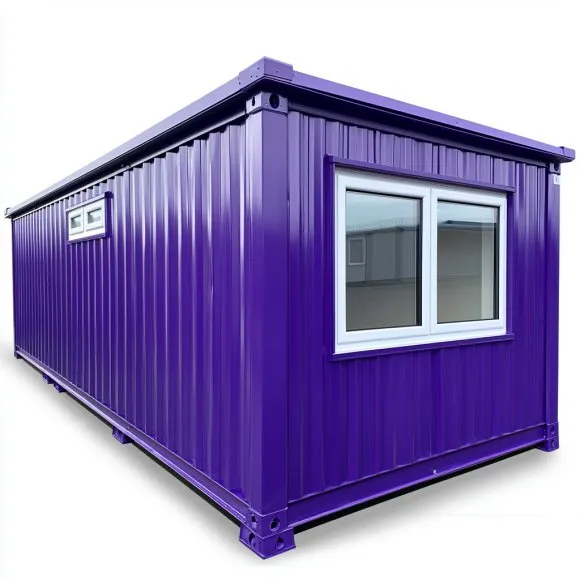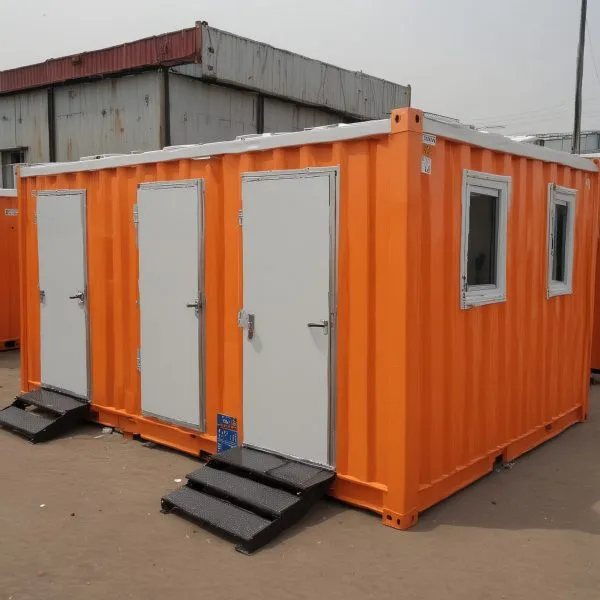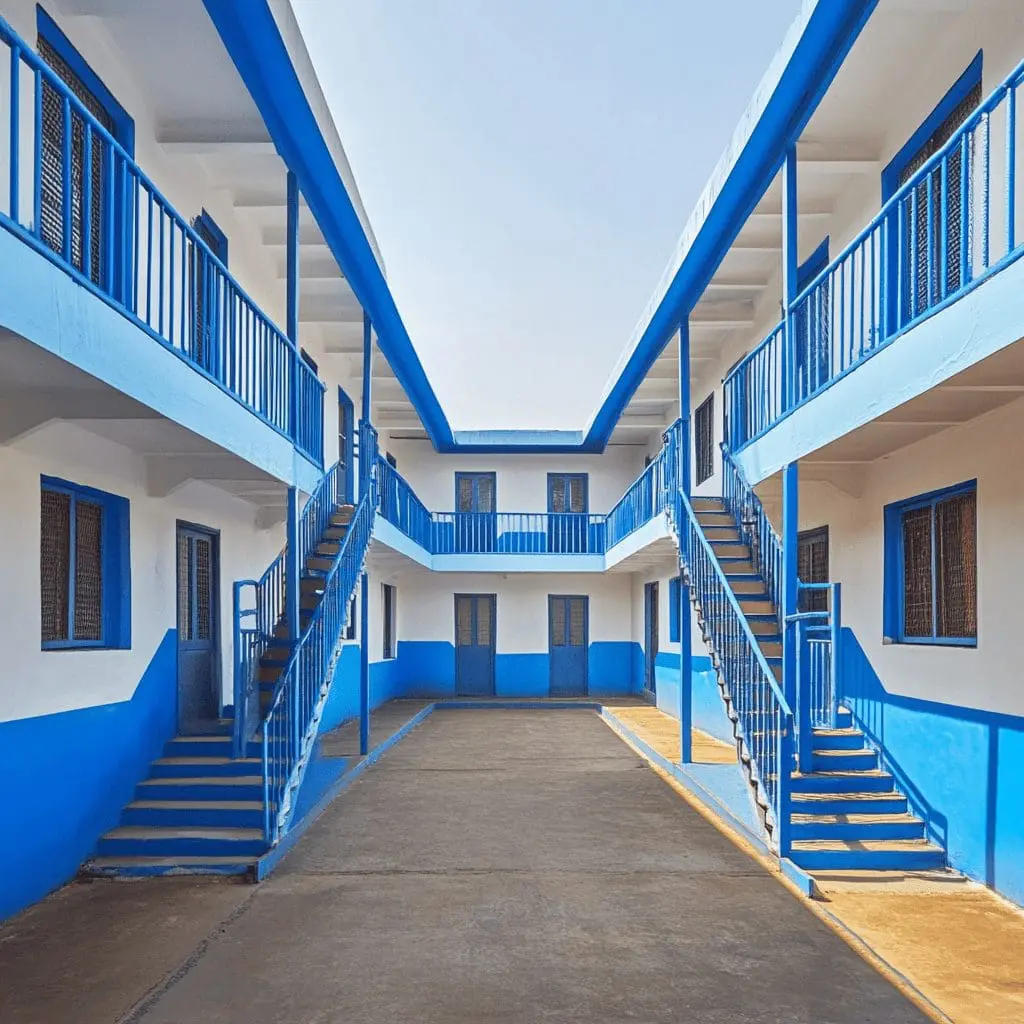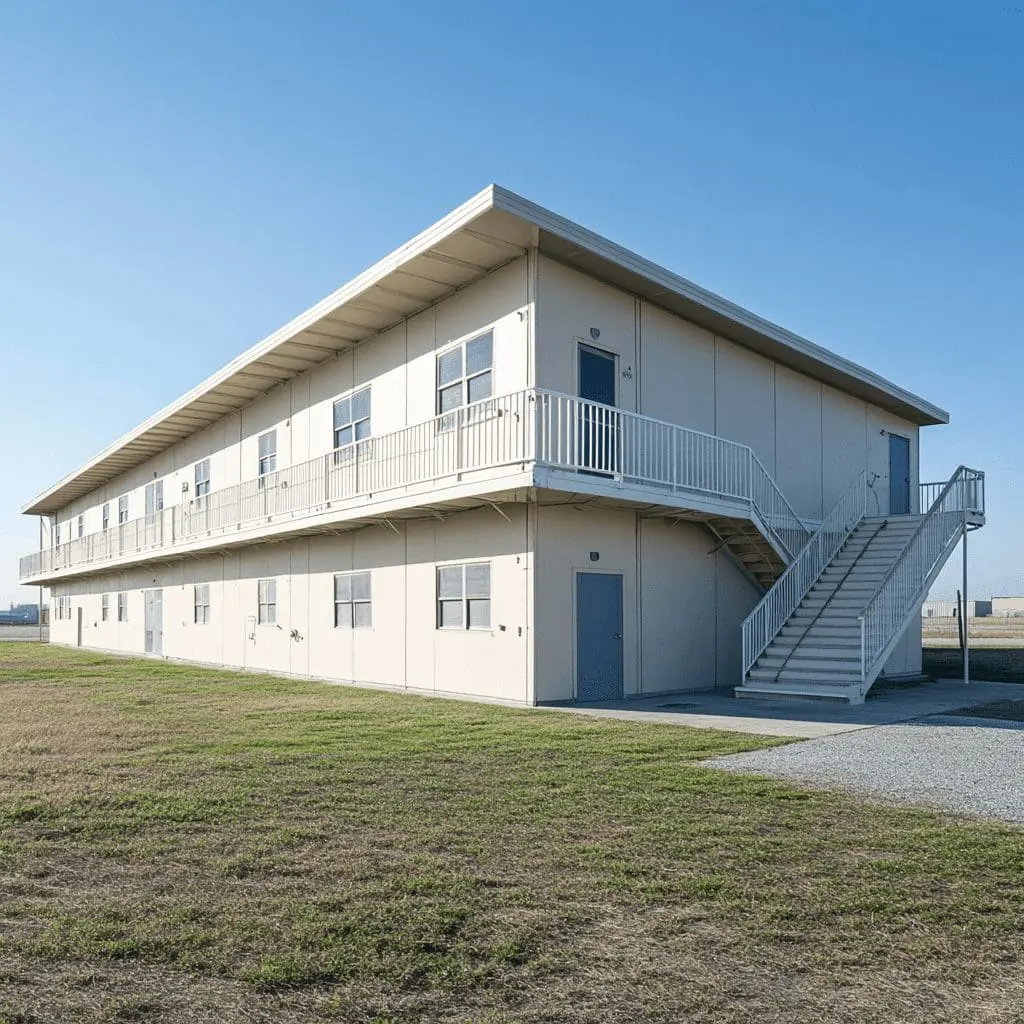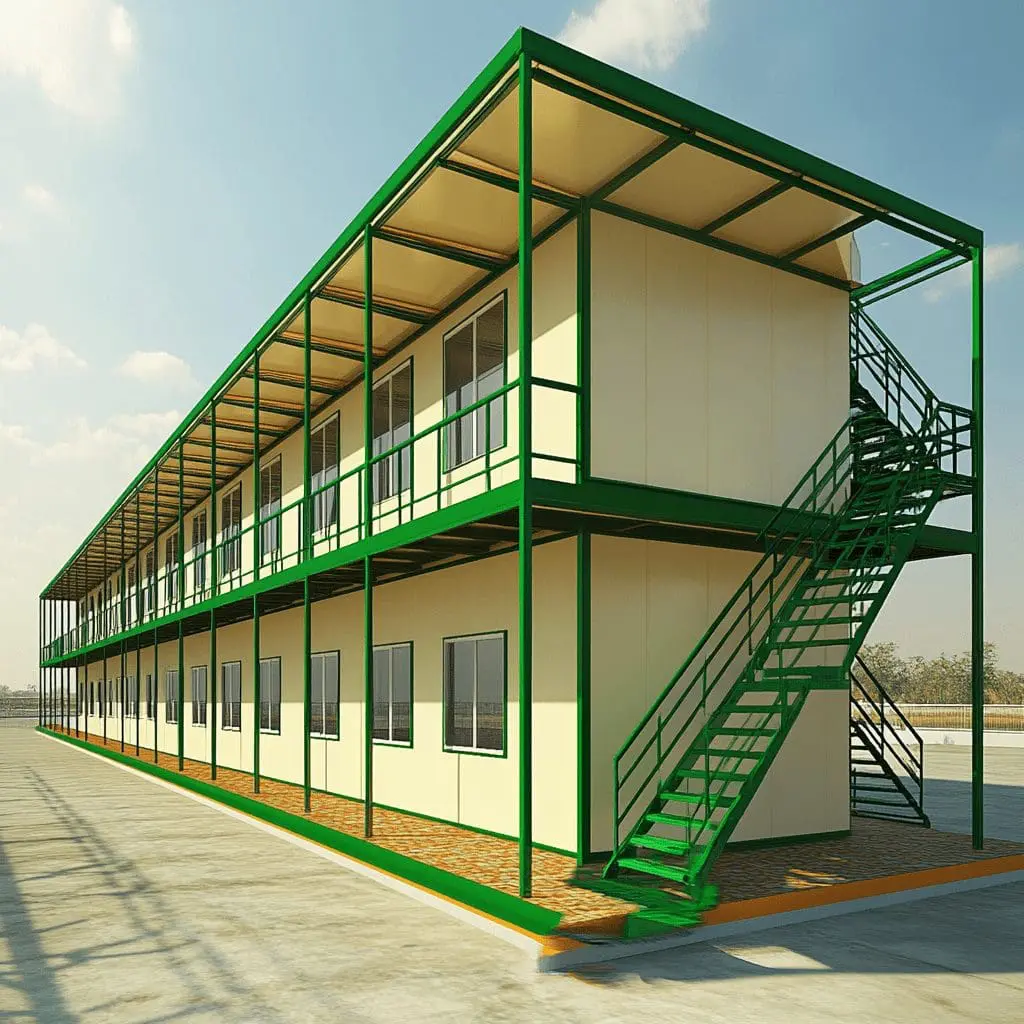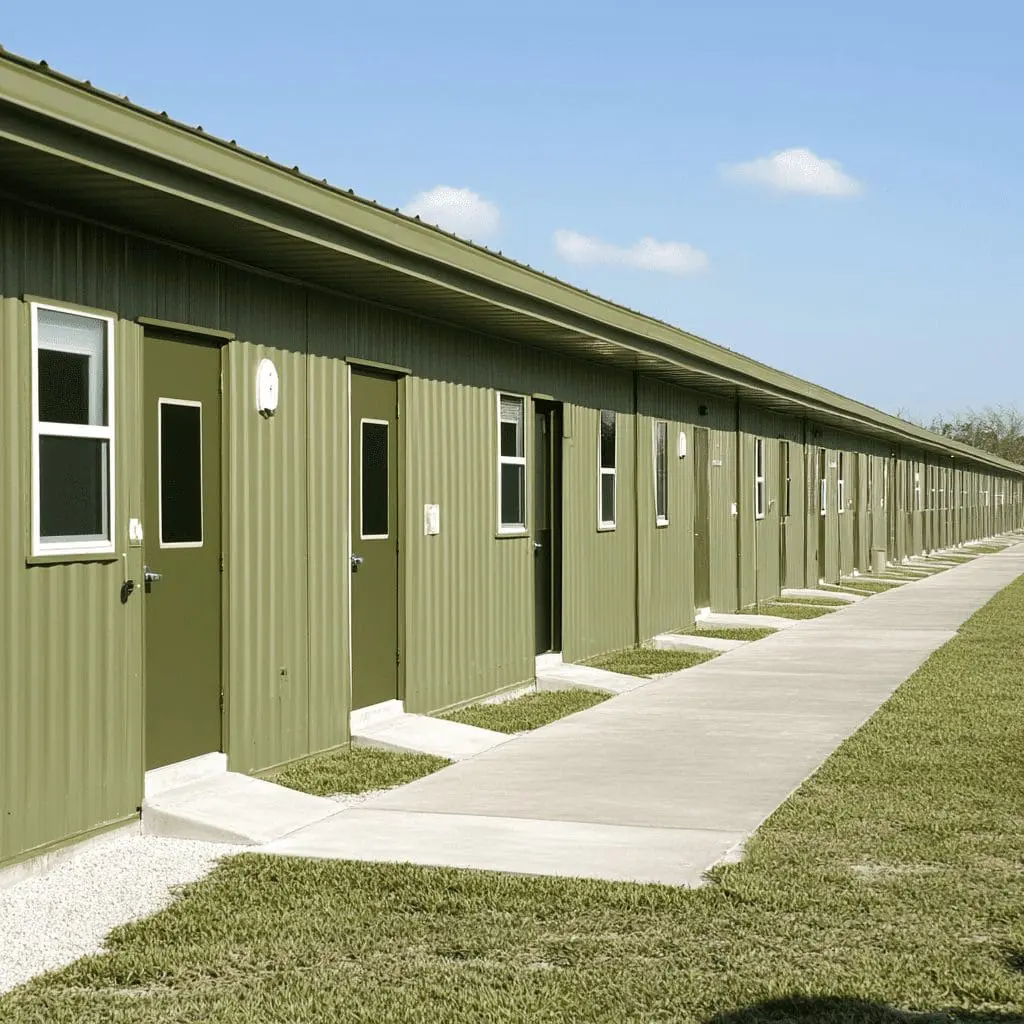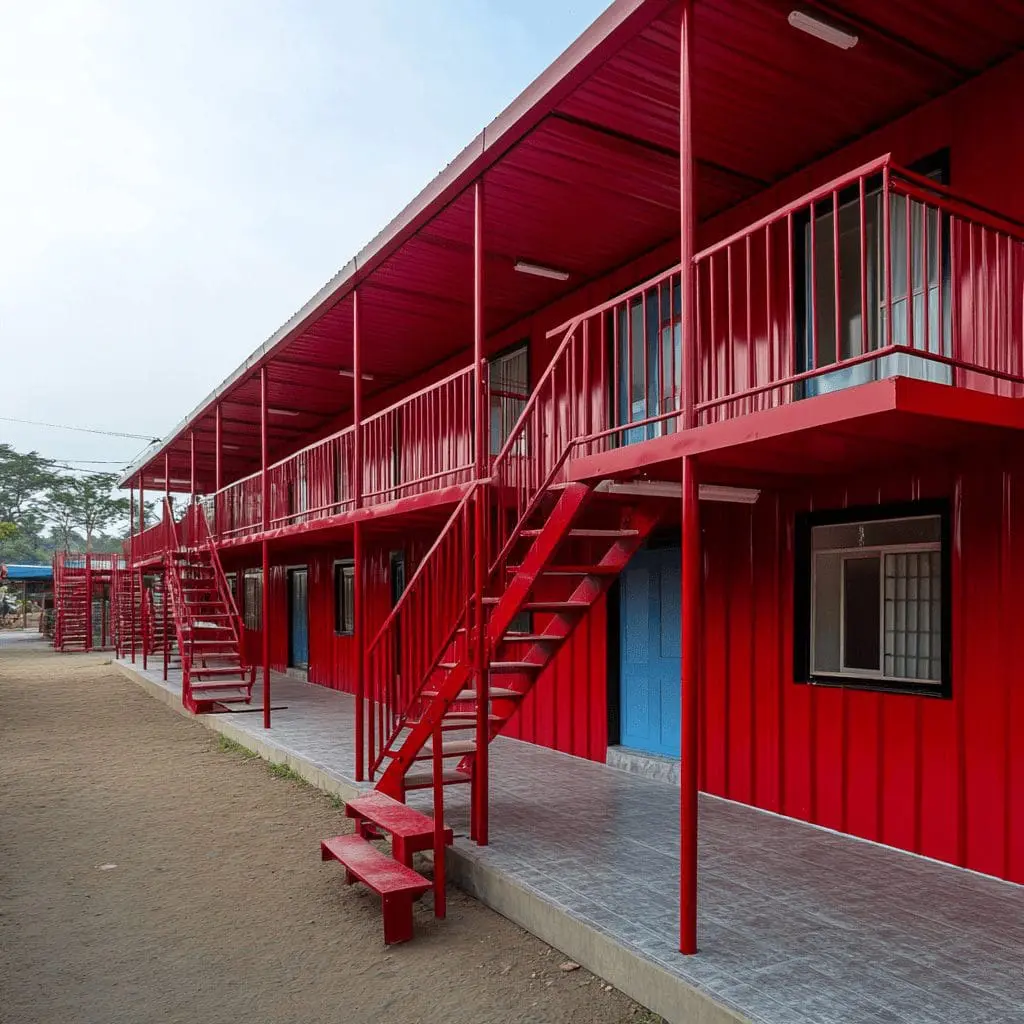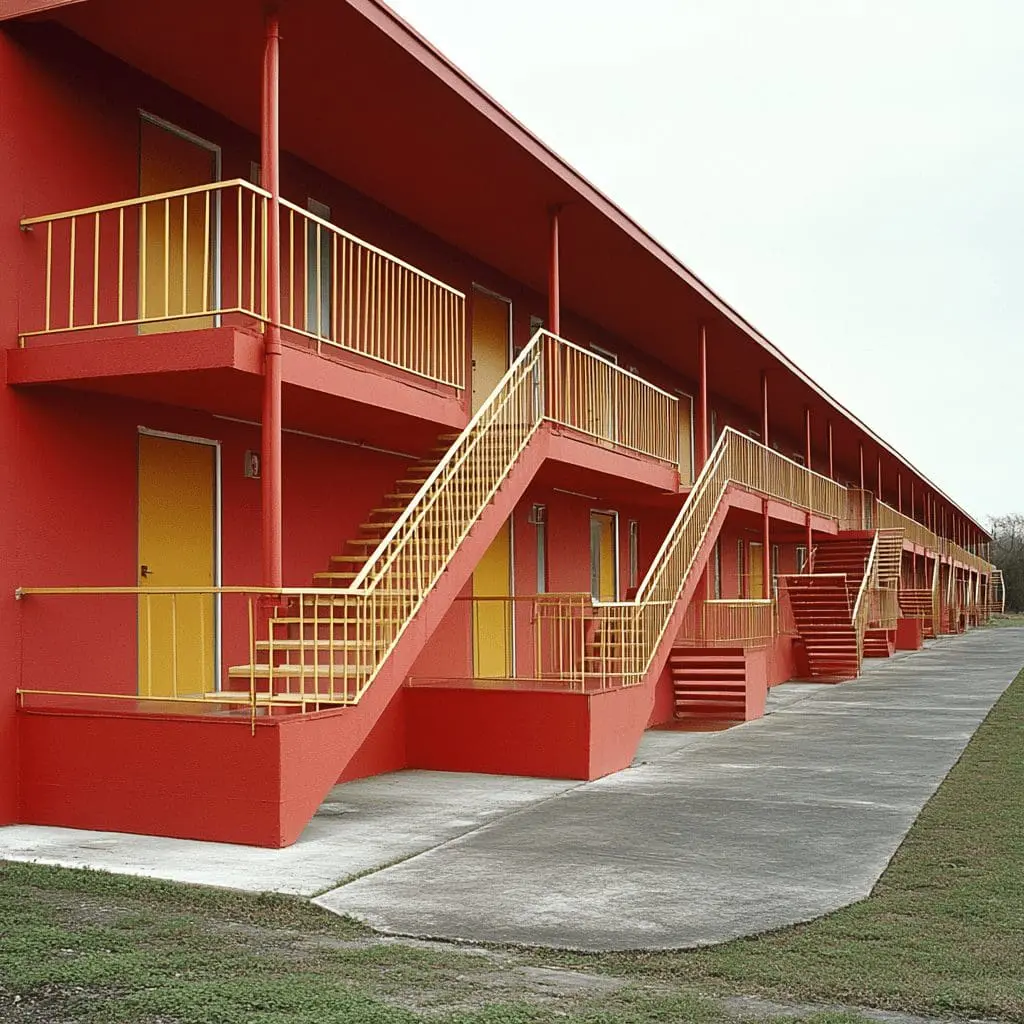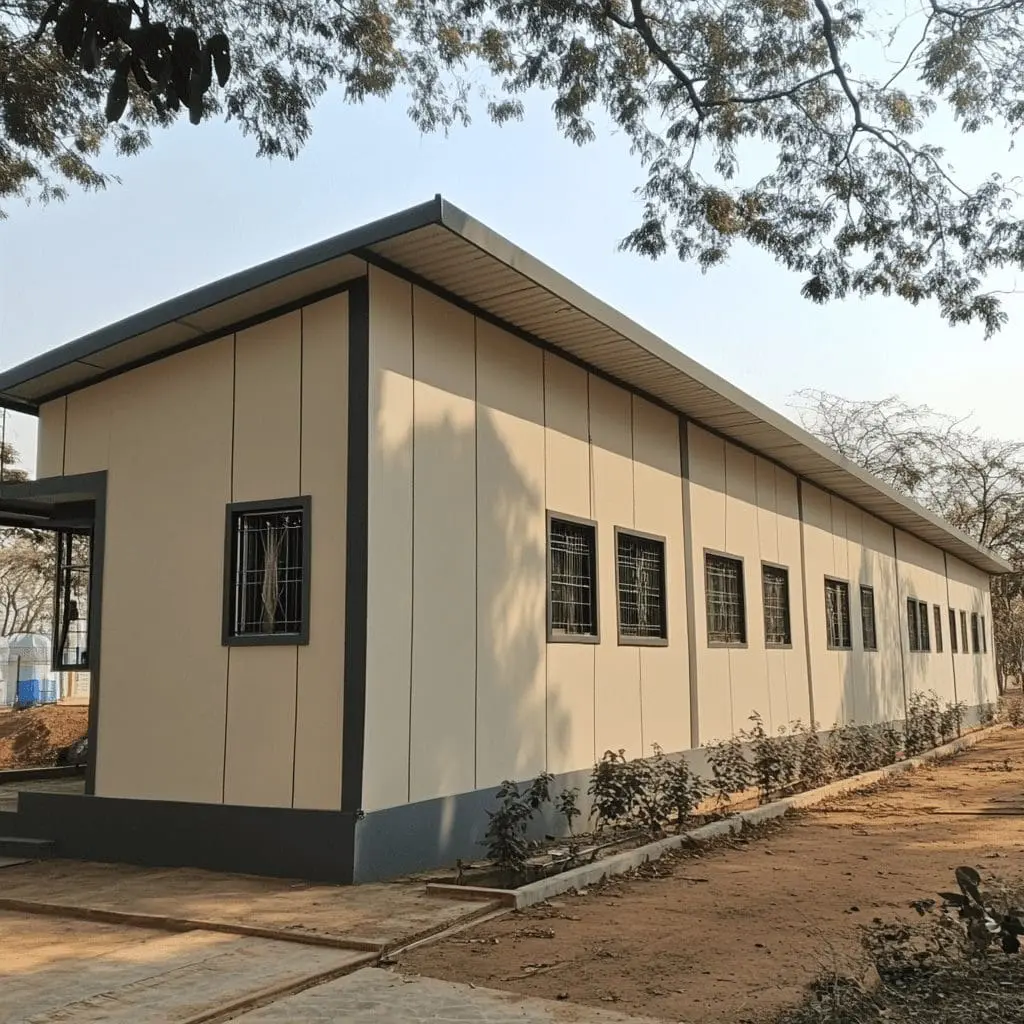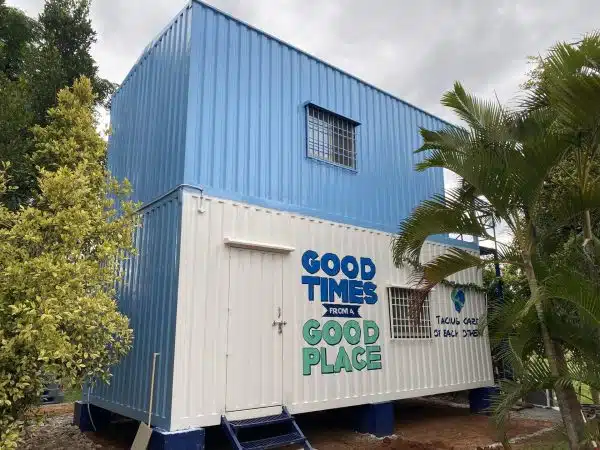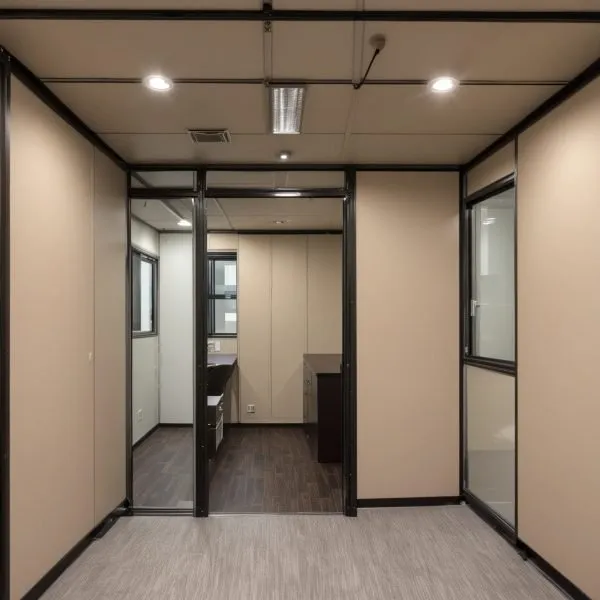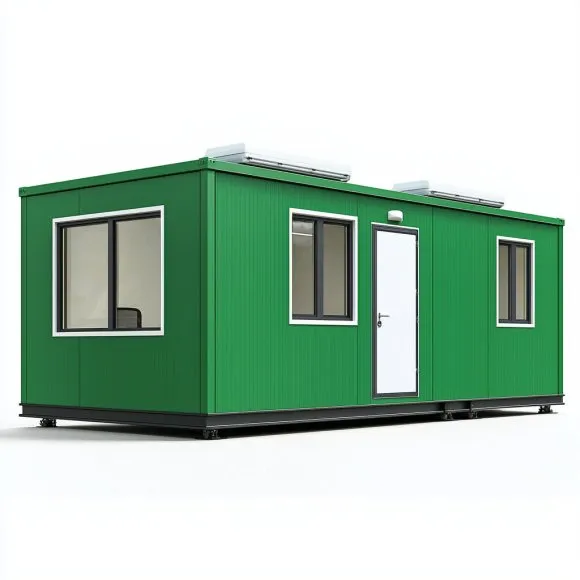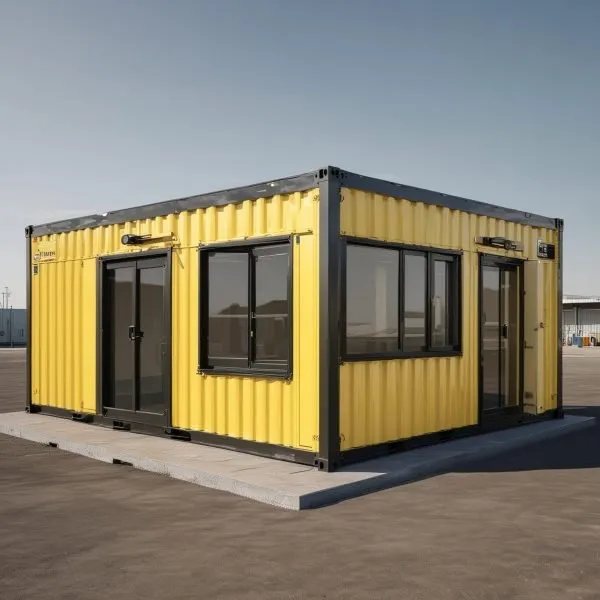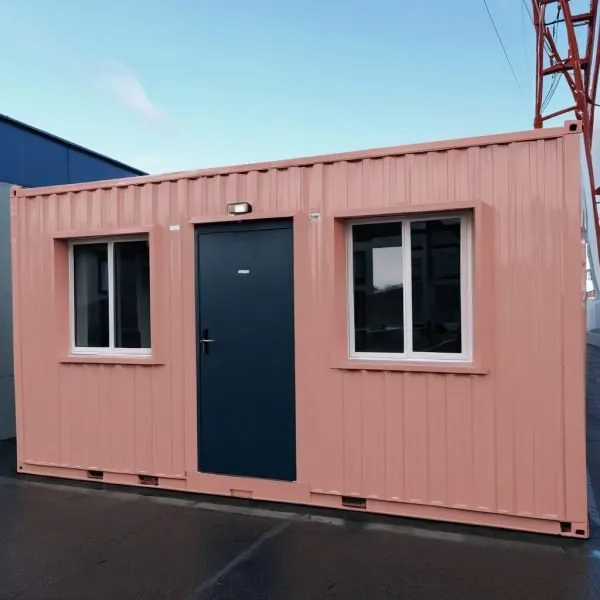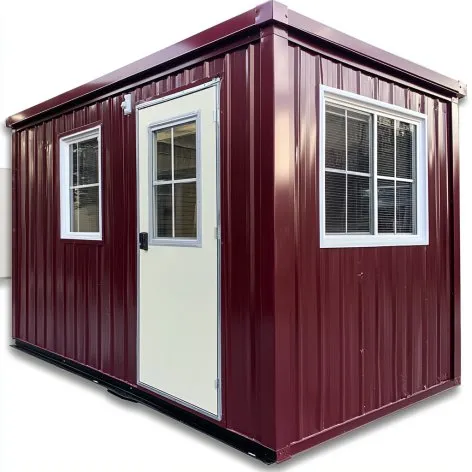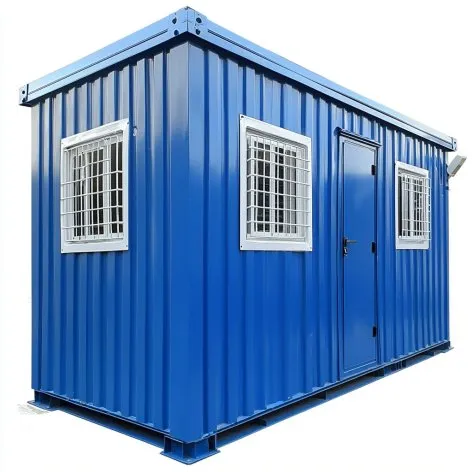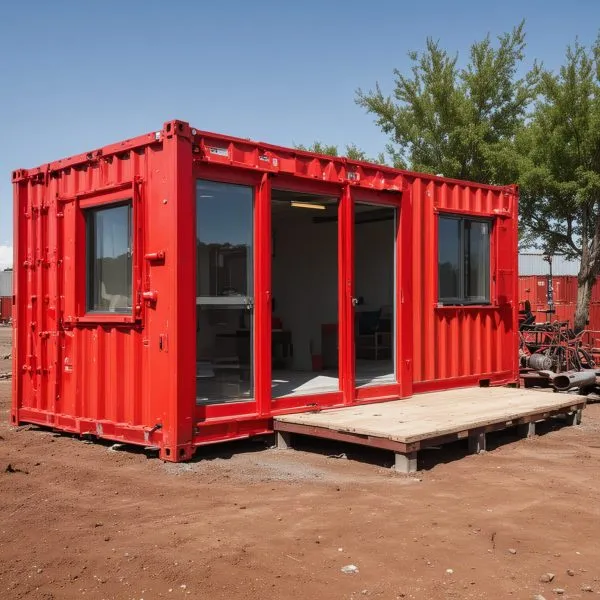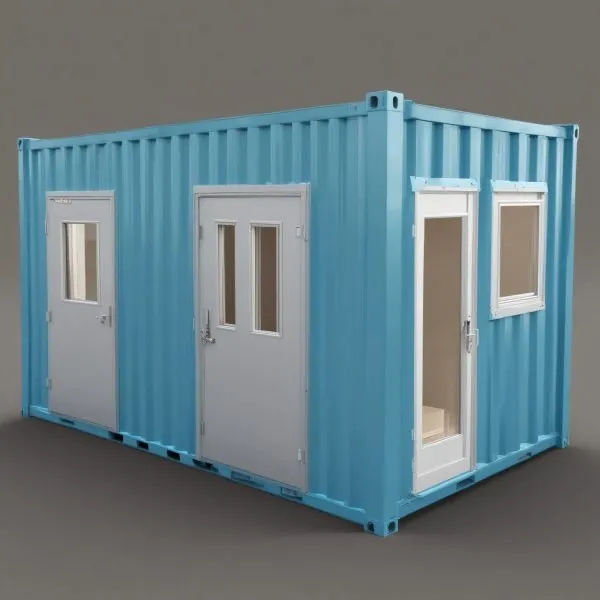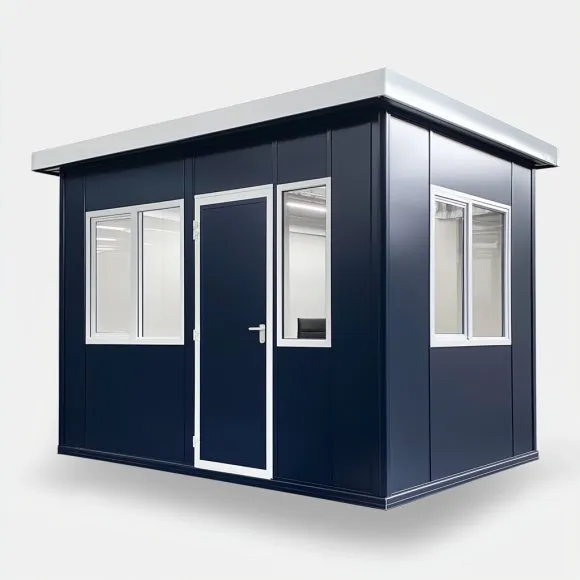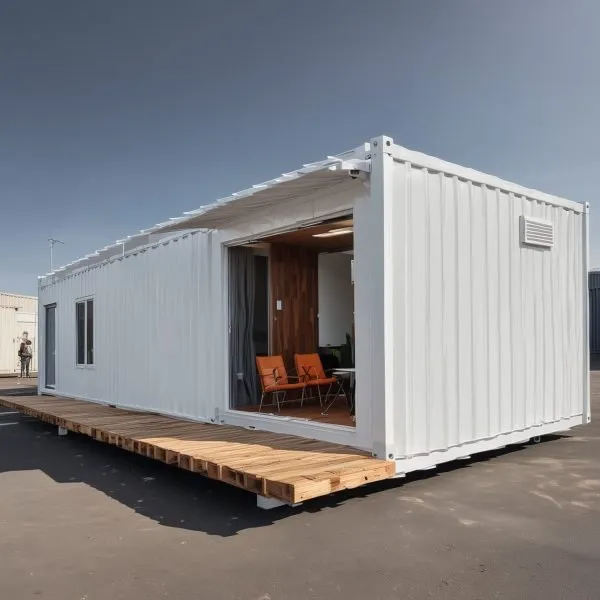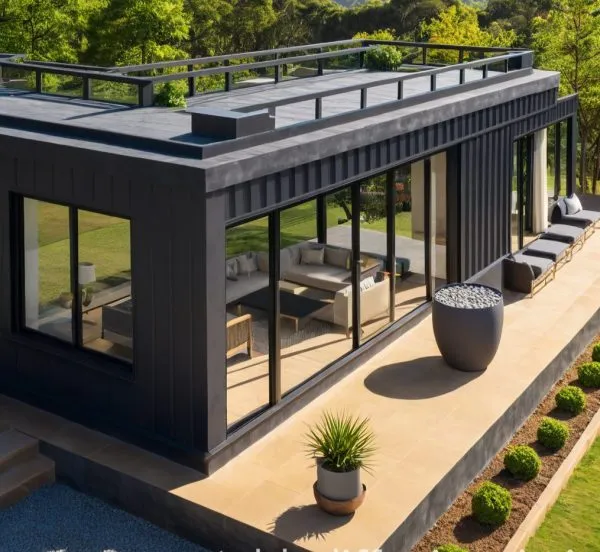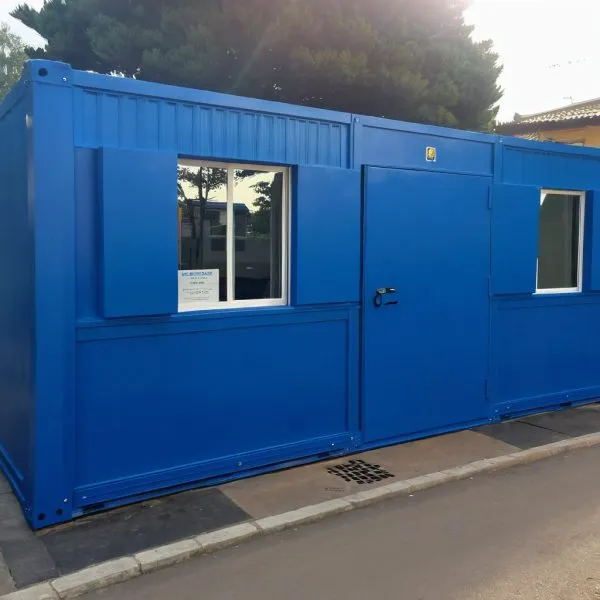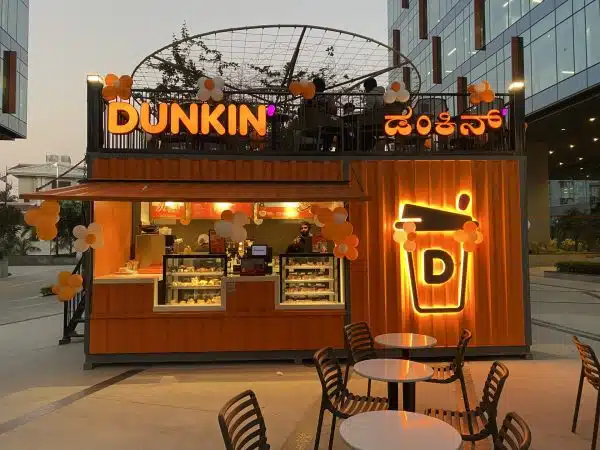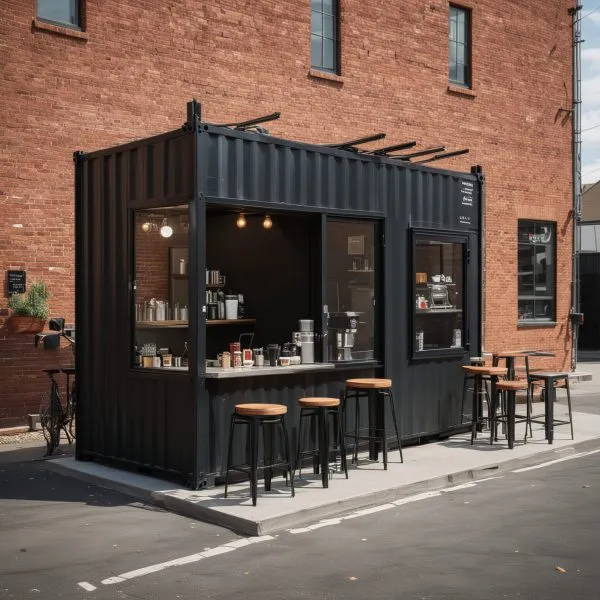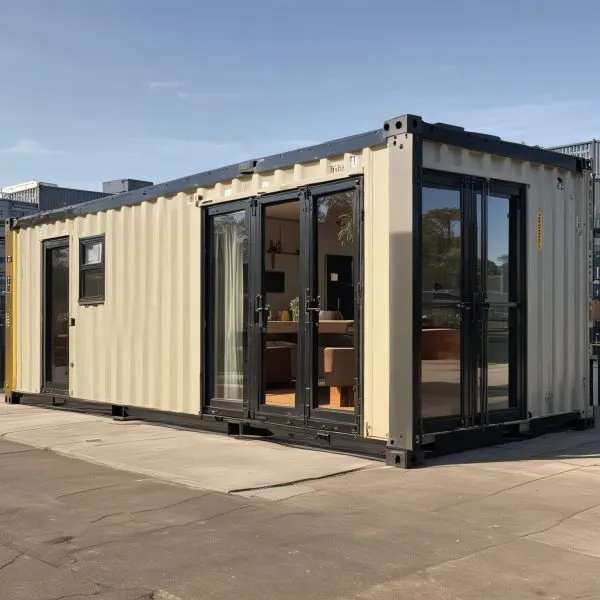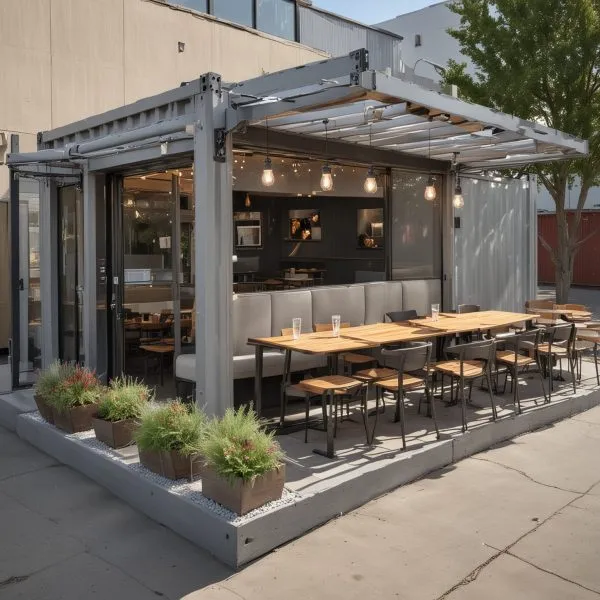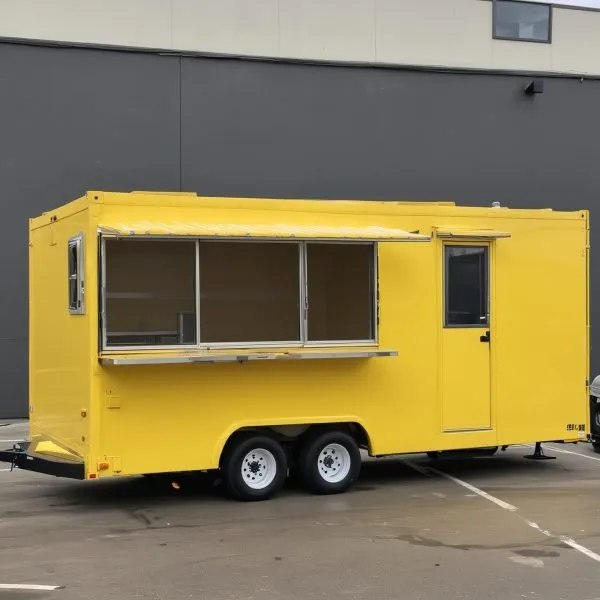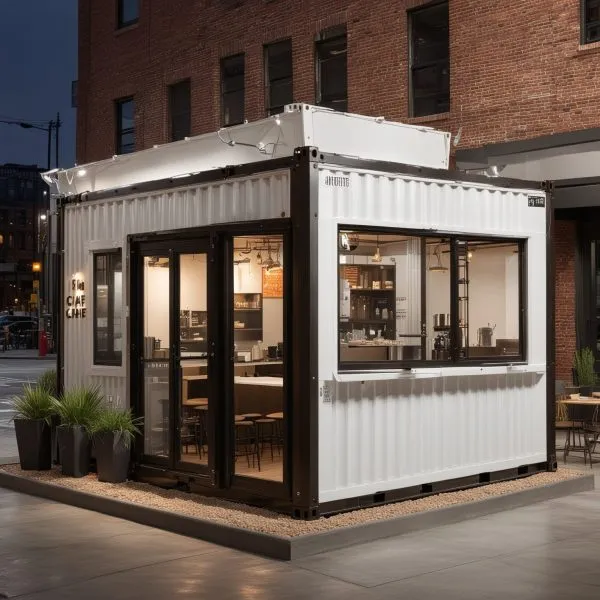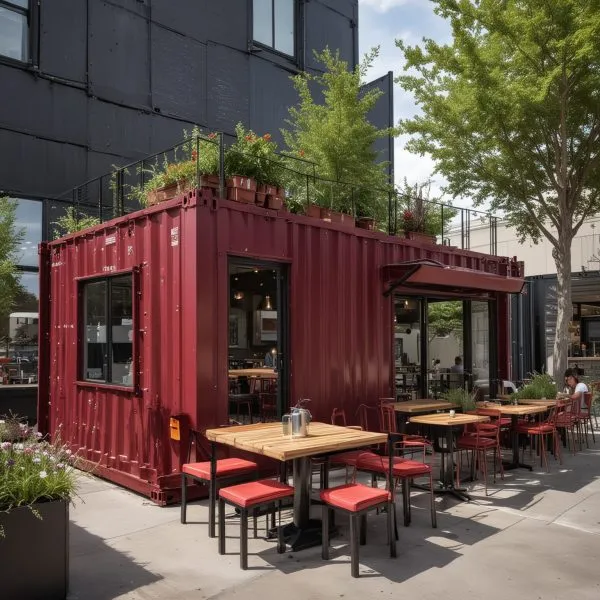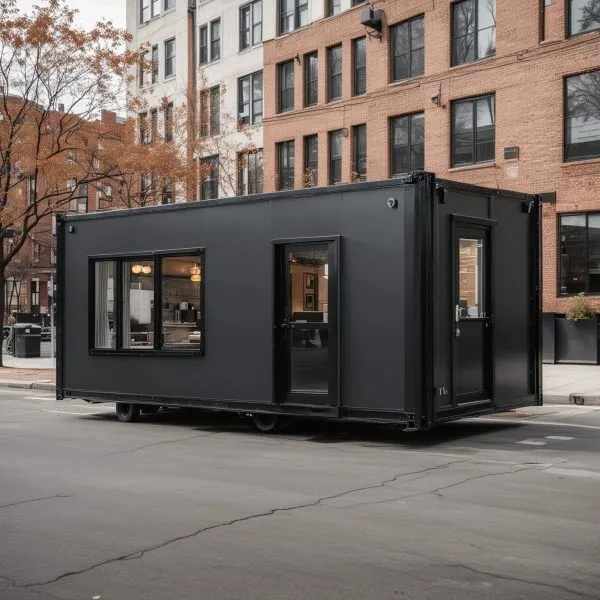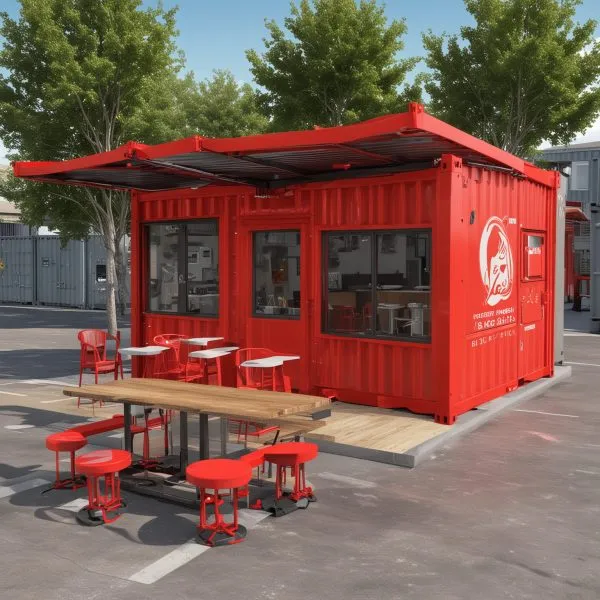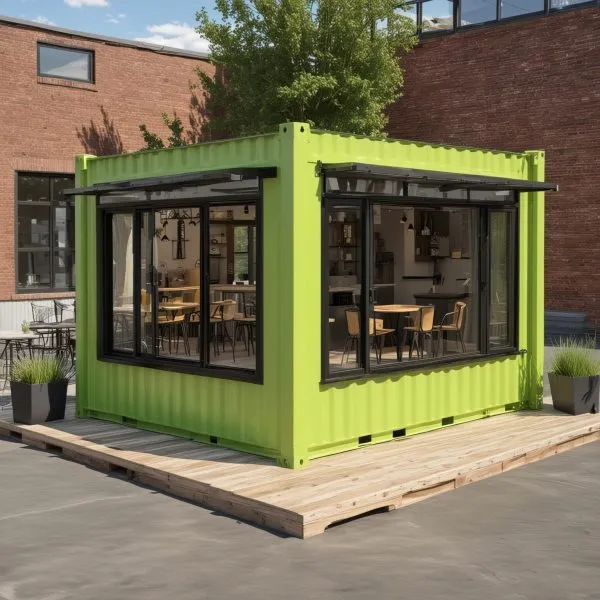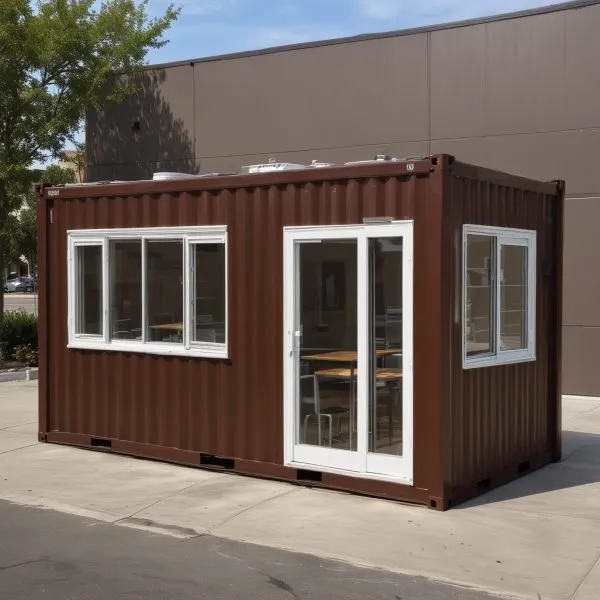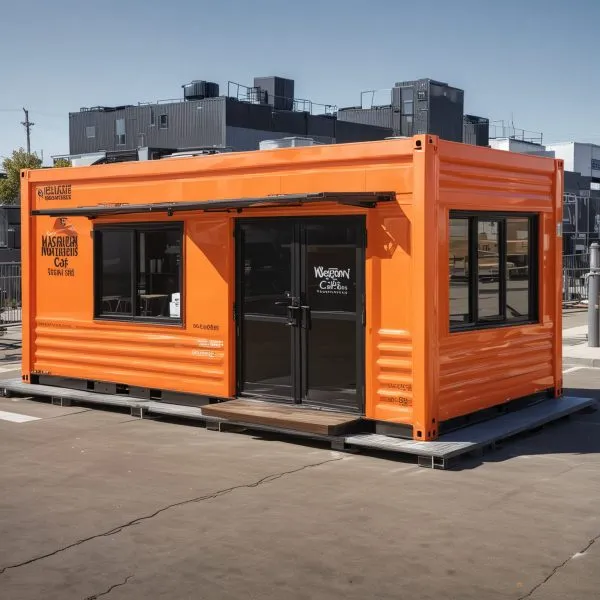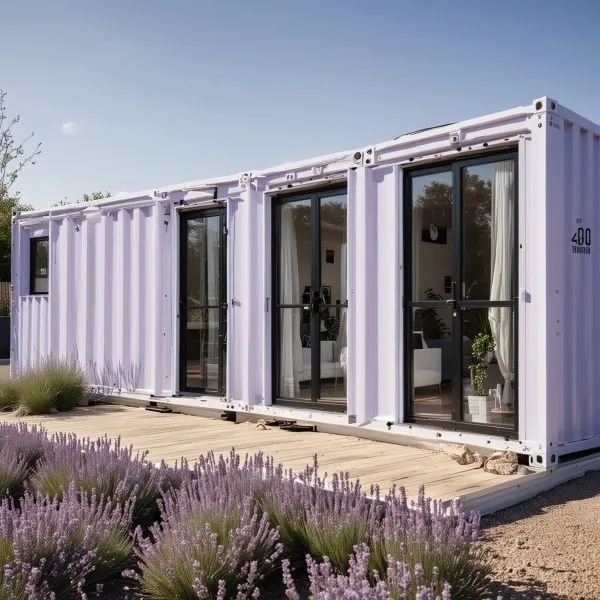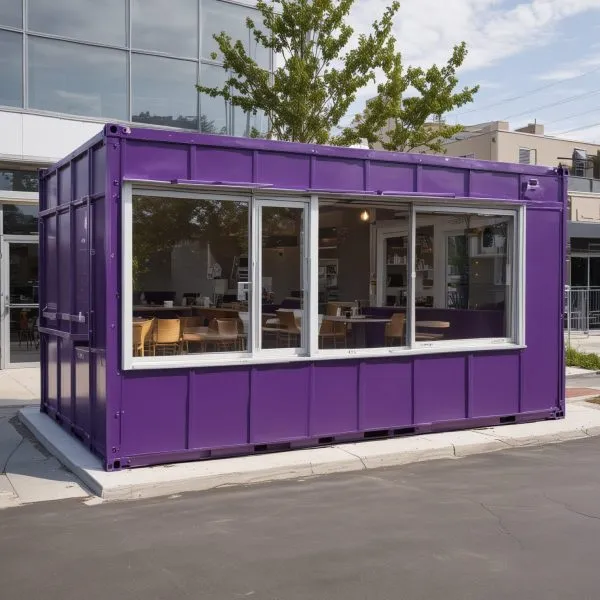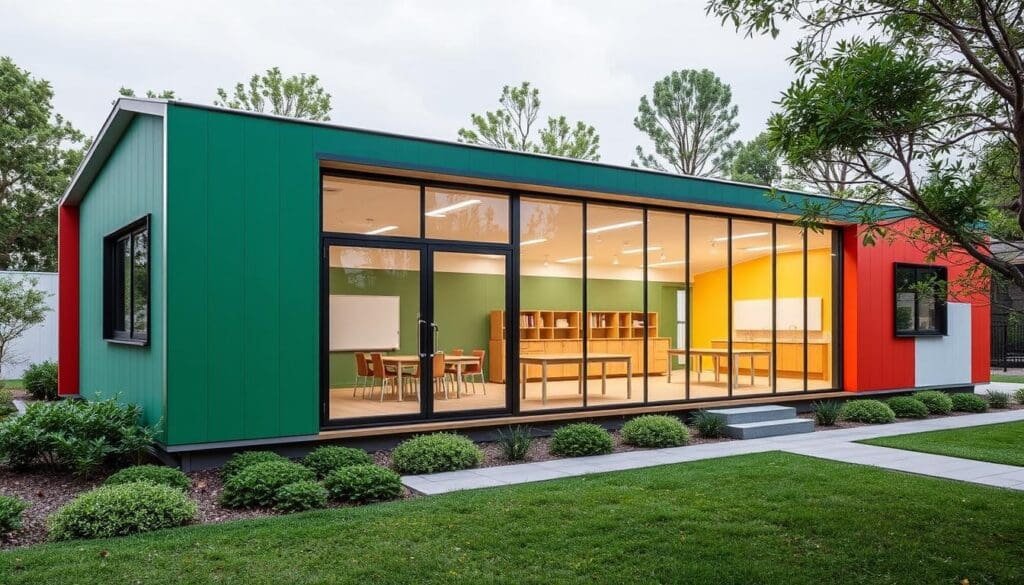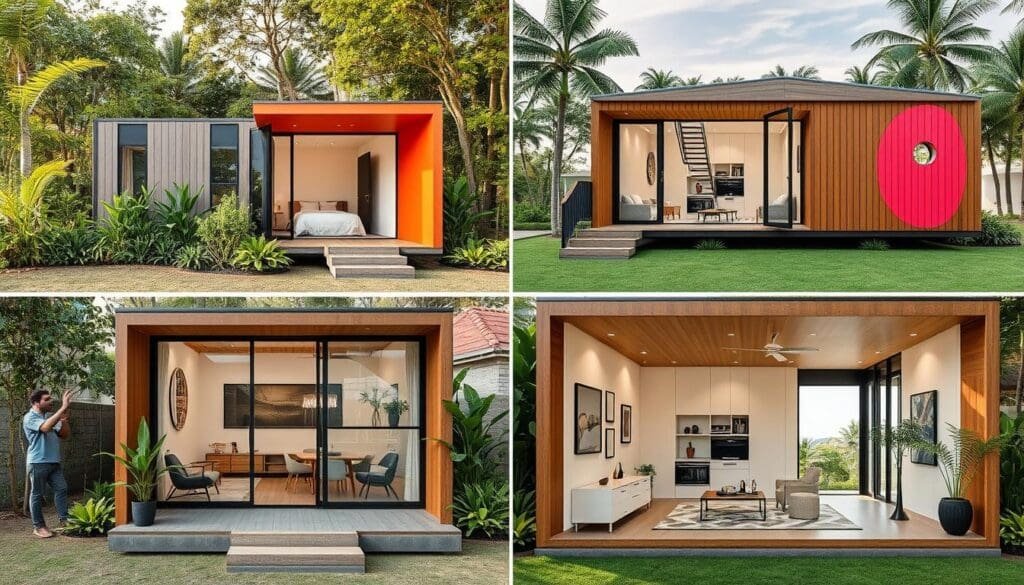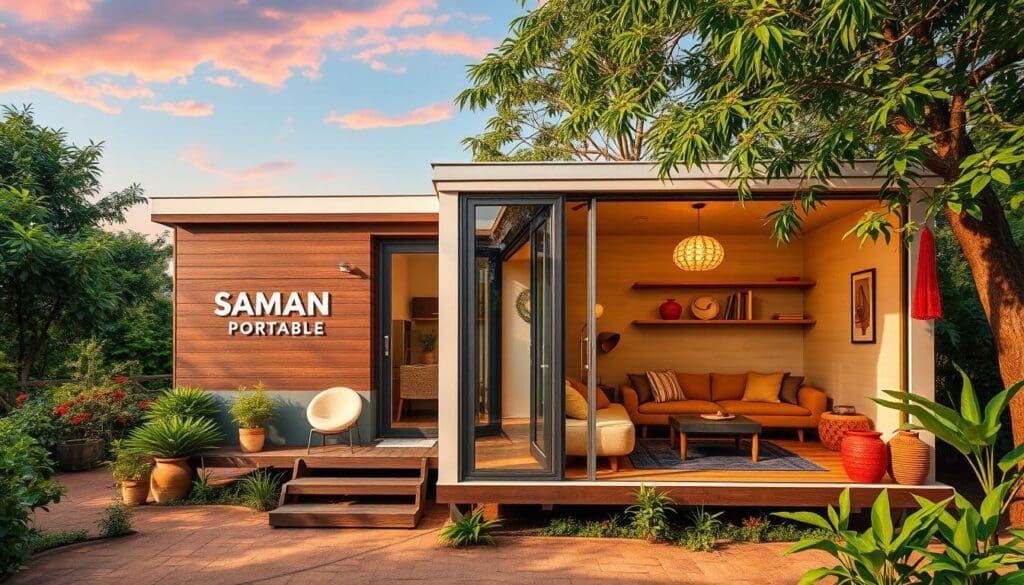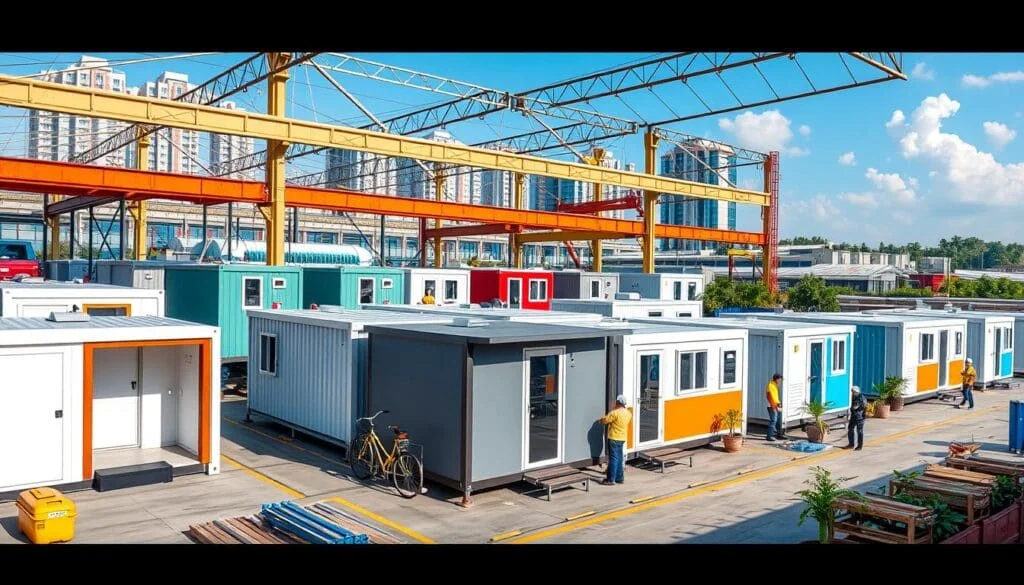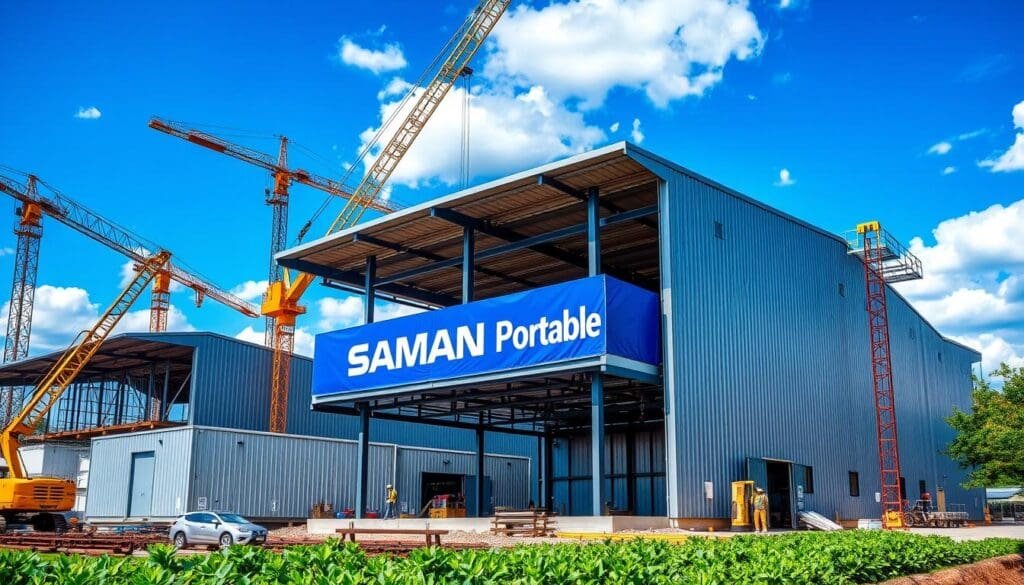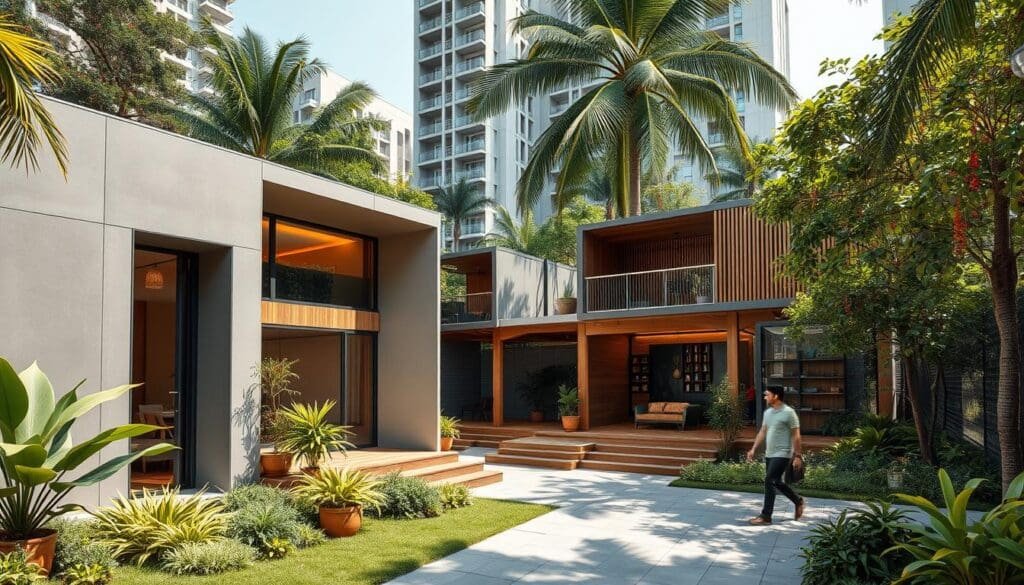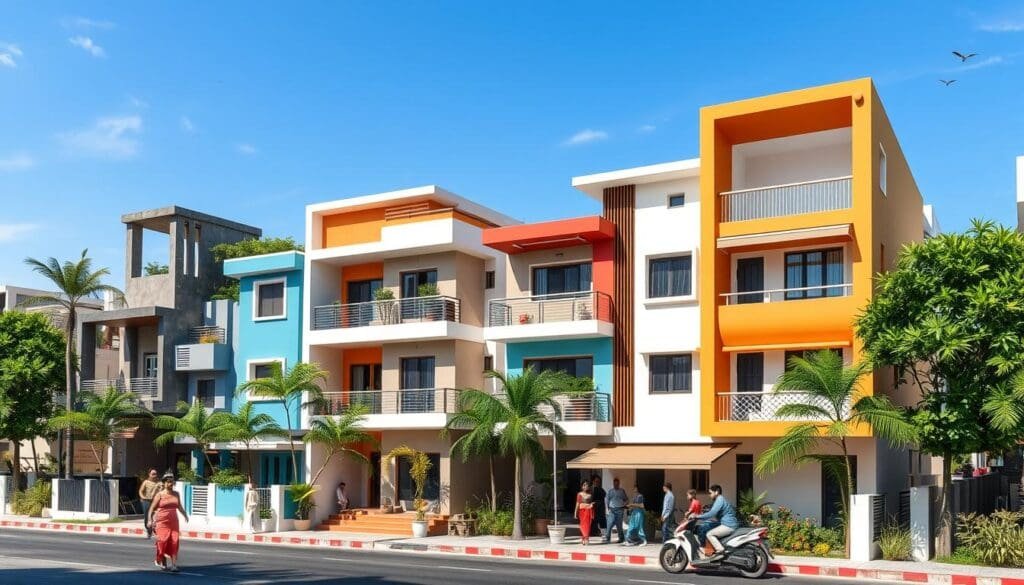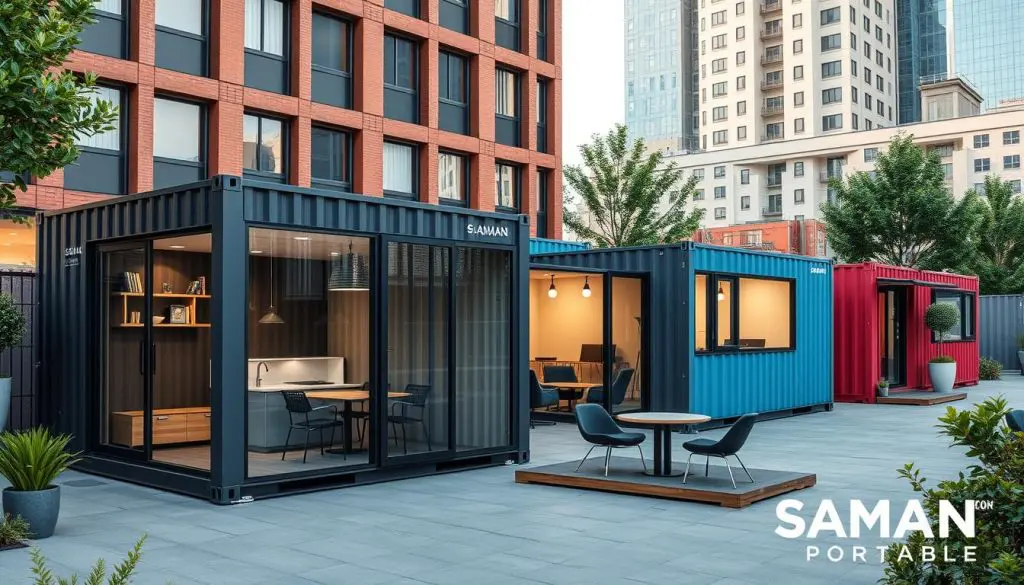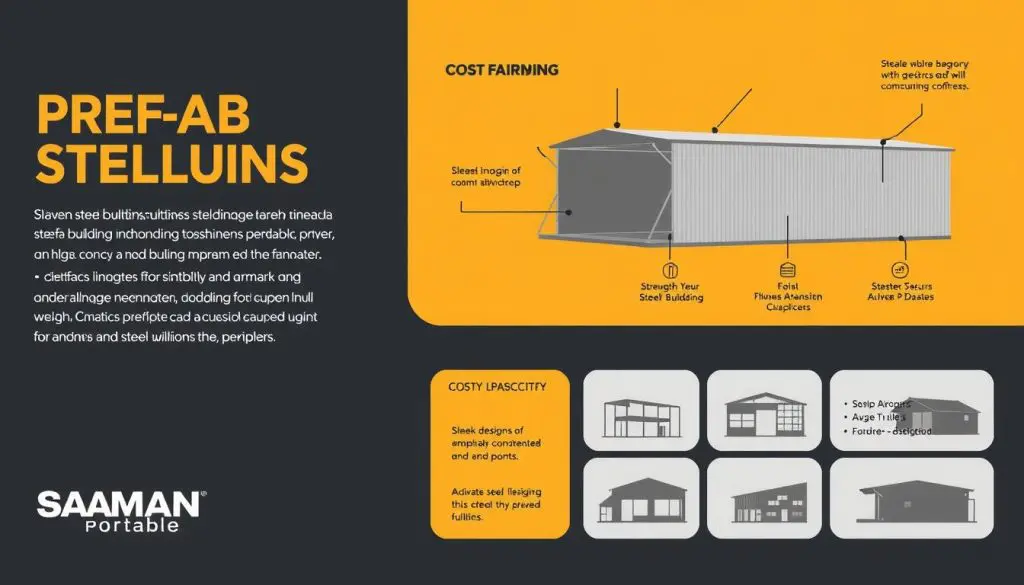Comprehensive Guide to Prefab Homes in Kerala: Market Insights, Benefits, and Costs
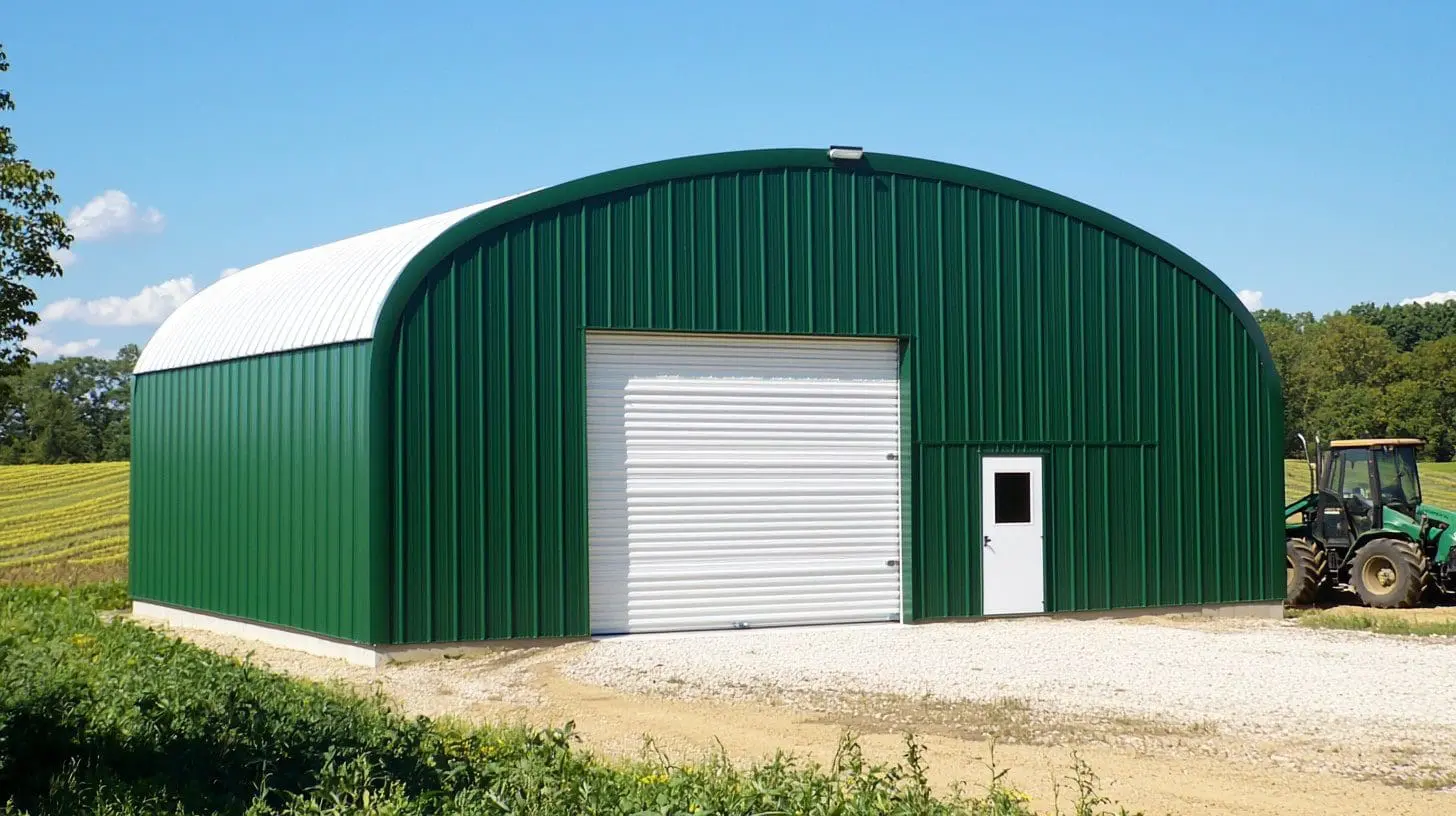
Introduction to Prefabricated Houses in Kerala
Understanding the Rise of Prefabricated Homes in Kerala
Kerala’s real estate market has witnessed significant changes in recent years, with prefabricated houses emerging as an increasingly popular option for residential and commercial needs. Prefabricated homes, also known as prefab houses, are built off-site in factories and then transported to the desired location for assembly. This streamlined process allows for faster construction and lower costs, making prefab houses an appealing solution in Kerala, where land prices and construction costs have been on the rise.
The demand for modular prefab buildings in Kerala is driven by various factors, including the state’s unique landscape, climate, and commitment to sustainable living. The flexibility and efficiency offered by prefabricated homes are particularly suitable for Kerala’s diverse terrain, from coastal areas prone to humidity to highlands where durable, weather-resistant structures are essential.
Why Prefab Homes are Suited for Kerala’s Housing Market
The appeal of prefab homes in Kerala extends beyond cost savings and speed of construction. Kerala’s focus on environmental conservation and sustainability makes prefabricated houses an ideal choice. These homes use eco-friendly materials, minimize construction waste, and can include energy-saving features like insulation and solar panels. For individuals looking to reduce their environmental footprint, options like container-based houses provide a sustainable alternative to traditional homes, as they repurpose shipping containers into functional, modern living spaces.
Prefab homes also cater to the state’s need for affordable housing solutions. With limited land availability in popular cities like Kochi and Thiruvananthapuram, prefabricated homes offer a practical way to create comfortable, cost-effective living spaces. Their adaptability allows homeowners to maximize space, even on smaller plots, while keeping costs under control.
Growth in Demand for Prefab Homes
The rising demand for prefab homes in Kerala is a reflection of changing preferences among homebuyers and businesses. Prefabricated homes allow for customizations and can be tailored to meet specific needs, making them suitable for a wide range of applications—from portable cabins for offices or guest houses to modular residential units. Additionally, the quick turnaround time for prefab homes is a huge benefit in Kerala’s competitive real estate market, where rapid construction can provide a substantial advantage.
As Kerala continues to modernize, prefabricated homes are set to play an essential role in the state’s real estate landscape. They align well with Kerala’s priorities of environmental responsibility, cost-effectiveness, and modern housing solutions, making them a sustainable choice for both residential and commercial purposes.
In the following sections, we will explore the types, benefits, and unique considerations of prefab homes in Kerala, providing a detailed guide for anyone considering a prefabricated structure in this vibrant region.
Unlock the advantages of PEB structures by exploring our PEB Buildings Benefits, Features & Applications page, where we detail the key benefits of prefab construction.
Types of Prefabricated Homes Available in Kerala

Exploring the Versatility of Prefab Home Options
Kerala’s market for prefabricated homes has expanded to include a variety of types, each designed to cater to specific needs and preferences. The most common types of prefab homes in Kerala include modular homes, container houses, panel-built homes, and eco-friendly tiny homes. These options offer flexibility, quick construction, and affordability, making them suitable for both urban and rural settings across the state.
Modular homes are one of the most popular choices in Kerala, as they are assembled in sections or modules that can be customized extensively. Modular homes are built in a controlled factory environment and then transported to the site for assembly. This type of prefab home is well-suited for larger families or those seeking multi-room layouts. Modular prefabricated buildings offer homeowners the chance to personalize their spaces with various interior layouts, finishes, and room configurations, making them ideal for both residential and commercial purposes.
Container Houses: Sustainable and Durable
Container houses are another excellent choice, especially for eco-conscious buyers. Made from repurposed shipping containers, these homes are not only sustainable but also exceptionally durable. Container homes can withstand Kerala’s variable climate, including the heavy monsoons and humidity typical of the coastal regions. They can be customized with insulation, ventilation, and aesthetic finishes to make them comfortable and visually appealing. Container-based houses are also highly flexible and can be used for various purposes, from residential homes to portable offices and studios, adding versatility to Kerala’s prefab housing landscape.
Panel-Built Homes for Quick Assembly
Panel-built homes are another popular option, especially for those seeking a fast, efficient construction process. These homes are assembled from pre-manufactured wall, floor, and roof panels that are transported to the site and joined together. Panel-built homes are known for their strong insulation and energy efficiency, making them ideal for Kerala’s diverse climate. Many people opt for panel-built portable cabins as they can serve as temporary guesthouses, home offices, or site accommodations, meeting both residential and commercial needs.
Eco-Friendly Tiny Homes for Minimalist Living
Tiny homes, designed to maximize limited space with functional layouts, have gained popularity among those who prefer a minimalist lifestyle. These eco-friendly structures are often built with sustainable materials and are ideal for solo residents or small families looking to reduce their environmental footprint. In Kerala, where green living is highly valued, tiny homes are an attractive option. They offer all essential amenities within a compact space, making them efficient and easy to maintain.
Versatile Solutions for Urban and Rural Settings
Each type of prefabricated home offers unique benefits, allowing homeowners in Kerala to choose the option that best suits their location, lifestyle, and budget. Whether it’s a spacious modular home for a suburban family, a compact container home for coastal areas, or a minimalist tiny home in the countryside, prefab homes provide versatile solutions that align with Kerala’s modern and environmentally conscious approach to housing.
Achieve unparalleled design flexibility with insights from our Design of PEB Structure: Key Elements guide, ensuring your prefab home meets all your aesthetic and functional needs.
Benefits of Choosing Prefabricated Homes in Kerala
Speedy Construction and Time Efficiency
One of the biggest advantages of prefabricated homes in Kerala is their rapid construction timeline. Unlike traditional homes, which often take months to complete due to on-site construction delays, prefab homes are built in a controlled factory setting, significantly reducing construction time. Once the components are ready, they are transported to the site for assembly, often completing the entire process within a matter of weeks. This efficiency is ideal for Kerala’s real estate market, where quick housing solutions are in high demand. For instance, modular prefabricated buildings are particularly beneficial for homeowners looking for a fast and reliable setup.
Cost-Effectiveness and Budget-Friendly Options
Prefabricated homes are known for their cost-effectiveness, making them an attractive choice for budget-conscious buyers in Kerala. The factory production process minimizes labor costs and material wastage, resulting in affordable construction without compromising on quality. Additionally, prefab homes offer long-term savings due to their durability and low maintenance requirements. For those seeking affordable housing solutions, options like container-based homes provide a budget-friendly alternative to traditional homes, especially for small families, young professionals, or even as guesthouses.
Environmental Sustainability and Reduced Waste
Kerala’s emphasis on environmental responsibility aligns well with the sustainable nature of prefabricated homes. The manufacturing process of prefab homes generates minimal waste compared to traditional construction, making it an eco-friendly option. Materials are carefully measured and cut in factories, reducing excess and ensuring efficient use of resources. Additionally, prefab homes often incorporate eco-friendly materials and can be customized with features like solar panels, rainwater harvesting systems, and energy-efficient insulation, which help reduce the home’s environmental impact. Many portable cabins in Kerala are designed with sustainable elements, supporting Kerala’s green building initiatives.
Adaptable and Customizable for Diverse Needs
Prefabricated homes offer a high degree of flexibility in terms of layout, design, and customization, catering to the varied needs of Kerala’s residents. Buyers can choose from different styles, interior finishes, and layout configurations to create spaces that align with their personal preferences and functional requirements. Whether it’s a multi-room family home, a cozy studio, or a functional office space, prefab homes can be tailored to meet individual needs. Portable modular units are particularly versatile and can serve as residential units, offices, or even temporary accommodations, offering adaptable solutions for various applications in both urban and rural settings.
Minimal Maintenance and Longevity
Prefab homes are built with durable, weather-resistant materials that require minimal maintenance, which is especially beneficial in Kerala’s humid and tropical climate. Many prefab homes use materials like treated steel and insulated panels that are resistant to corrosion, moisture, and termite damage, ensuring long-lasting performance with little upkeep. This low-maintenance aspect appeals to many homeowners in Kerala, as it reduces the hassle and costs associated with regular home repairs and maintenance.
These benefits make prefabricated homes a compelling choice for anyone in Kerala looking for a cost-effective, sustainable, and flexible housing option that aligns with the state’s progressive and environmentally conscious lifestyle.
Ensure quality and reliability by partnering with leading manufacturers listed on our PEB Building Manufacturers in India page, dedicated to excellence in prefab construction.
Cost Efficiency of Prefab Homes Compared to Traditional Housing
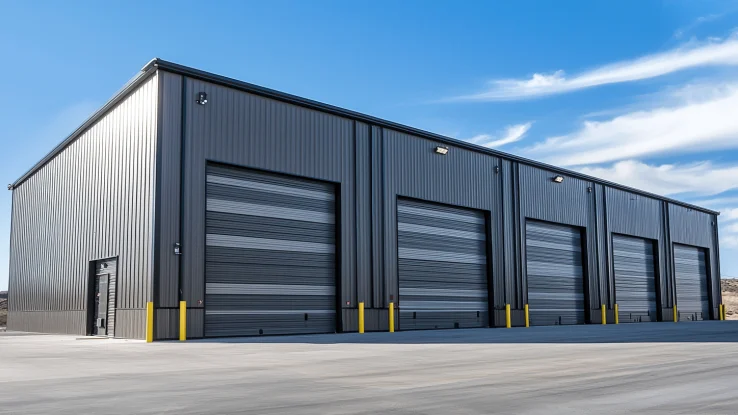
Lower Initial Construction Costs
One of the most appealing aspects of prefabricated homes is their cost efficiency, which makes them a budget-friendly alternative to traditional housing in Kerala. Prefab homes are constructed off-site in a factory-controlled environment, minimizing the need for labor-intensive on-site work and reducing material waste. This process significantly lowers initial construction costs, as prefab homes can be completed in a fraction of the time required for traditional homes. For instance, modular prefab buildings allow homeowners to achieve a high-quality, customized living space at a more affordable price point, meeting the needs of those looking to maximize their investment.
In Kerala’s competitive real estate market, the lower construction costs associated with prefab homes provide a viable option for families and individuals who want to build their own homes without the high expenses linked to conventional methods.
Reduced Labor and Material Costs
The prefab manufacturing process also contributes to cost savings by lowering labor and material expenses. Since prefab homes are assembled off-site, there is minimal need for on-site labor, and the construction process is less susceptible to delays caused by weather or site conditions. Materials are pre-measured and cut precisely, reducing waste and allowing manufacturers to use resources efficiently. Structures like container-based prefab homes capitalize on cost-effective, durable materials, providing a sturdy, affordable alternative to conventional housing that suits both urban and rural settings in Kerala.
Additionally, the streamlined construction process of prefab homes means fewer hidden or unexpected costs, as project timelines and budgets are typically adhered to more closely than in traditional construction.
Long-Term Savings with Low Maintenance Requirements
Beyond the initial cost savings, prefab homes offer long-term financial benefits due to their durability and low maintenance requirements. Built with high-quality, weather-resistant materials, prefab homes require less frequent maintenance and repairs than traditional homes. This feature is particularly advantageous in Kerala’s climate, where moisture, humidity, and seasonal monsoons can cause wear and tear on conventional buildings. Portable cabins and modular homes constructed from materials like treated steel and insulated panels are designed to withstand Kerala’s tropical environment, helping homeowners save on future maintenance costs.
Energy Efficiency and Utility Cost Reductions
Prefab homes are often built with energy-efficient features that help reduce utility bills over time. Many prefab designs include insulated walls, energy-efficient windows, and ventilation systems that help maintain a comfortable indoor temperature with minimal energy use. In a warm, humid state like Kerala, these energy-saving attributes provide significant long-term savings on cooling costs, making prefab homes an economical choice. Some prefab structures, such as portable modular units, also support renewable energy options like solar panels, further decreasing energy costs and supporting sustainable living.
Value for Money and Investment Potential
Prefab homes in Kerala offer excellent value for money, providing durable, customizable living spaces that rival the quality of traditional homes. As demand for eco-friendly, efficient housing grows, prefab homes continue to increase in popularity, offering high-quality, budget-friendly options that do not compromise on durability or design. These homes meet the needs of modern homeowners by providing a cost-effective housing solution that combines affordability with long-term savings, enhancing their value in Kerala’s dynamic real estate market.
Broaden your prefab housing perspective by reading about our Prefabricated Houses in Hyderabad projects, showcasing successful implementations in Hyderabad.
Durability and Resilience of Prefabricated Homes in Kerala’s Climate
Built to Withstand Kerala’s Diverse Weather Conditions
One of the essential considerations for housing in Kerala is the ability to withstand the state’s varied climate. From intense summer heat and heavy monsoon rains to the humidity of coastal areas, Kerala’s weather demands durable building materials. Prefabricated homes are designed with these environmental factors in mind, making them a reliable option for resilient housing. Constructed with durable materials like treated steel, concrete panels, and weather-resistant coatings, modular prefab buildings offer robust structures that can endure Kerala’s demanding climate.
Prefabricated homes provide a layer of protection against environmental elements, as they are assembled with high-quality materials tested for longevity. This durability makes prefab homes especially suitable for Kerala’s coastal regions, where traditional buildings are prone to corrosion and damage from salt-laden air.
Weather-Resistant Materials for Longevity
Prefab homes utilize materials engineered to resist wear and tear, such as moisture-resistant walls, insulated panels, and waterproof roofing. These features prevent issues like rust, mold, and moisture damage, which are common in Kerala’s humid climate. Container houses are especially popular in areas with fluctuating weather, as they offer a sturdy, weatherproof solution that requires minimal maintenance. These materials ensure that prefab homes maintain their structural integrity and aesthetic appeal over time, providing peace of mind for homeowners.
Furthermore, prefab homes in Kerala can be customized with extra protective elements, such as reinforced roofing, advanced drainage systems, and weatherproof siding, enhancing their resilience and suitability for high-rainfall zones.
Efficient Insulation for Temperature Control
Prefab homes in Kerala are often equipped with advanced insulation systems that regulate indoor temperatures, providing a comfortable living environment year-round. The insulation used in prefab structures helps to keep interiors cool during Kerala’s hot summers, reducing the need for excessive air conditioning. With features like insulated walls and energy-efficient windows, portable cabins maintain comfortable temperatures indoors, contributing to energy savings and promoting sustainable living.
This temperature control is particularly beneficial in Kerala’s humid climate, where cooling needs can add to utility costs. By reducing dependency on air conditioning, prefabricated homes in Kerala offer a climate-smart solution that enhances comfort while minimizing energy consumption.
Resilience Against Natural Disasters
Prefabricated homes are engineered to meet rigorous safety and durability standards, which makes them capable of withstanding natural forces. Prefab homes are often designed to meet or exceed building codes for wind and seismic resistance, providing stability and security in regions susceptible to high winds or mild seismic activity. With Kerala’s coastal areas occasionally facing strong winds during monsoon season, the resilience of portable modular units adds an extra layer of security for homeowners.
The high-quality materials and construction techniques used in prefab homes ensure a reliable, long-lasting structure that minimizes the need for frequent repairs. For residents of Kerala, prefabricated homes offer a combination of durability, climate-resistance, and cost-efficiency, making them an ideal solution for both urban and rural housing needs.
Overall, the design and materials of prefabricated homes align perfectly with the demands of Kerala’s climate, providing a resilient and low-maintenance housing option that stands up to the state’s environmental challenges.
Gain inspiration from our Prefabricated House in Pune Overview page, highlighting effective prefab projects in Pune.
Environmental Benefits of Prefab Homes in Kerala
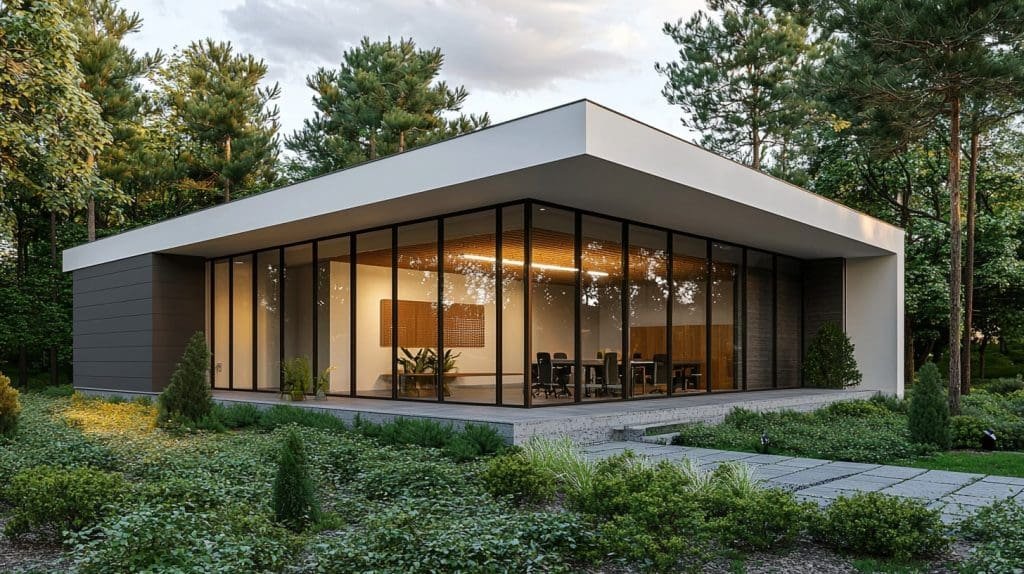
Eco-Friendly Construction with Minimal Waste
Prefabricated homes are celebrated for their environmental benefits, particularly in a state like Kerala, where eco-conscious living is valued. The factory-controlled construction process of prefab homes leads to minimal material wastage, as each component is precisely measured, cut, and assembled off-site. This efficiency reduces the environmental impact associated with traditional on-site construction, where excess materials often end up as waste. By choosing modular prefab buildings, residents of Kerala contribute to sustainable building practices, aligning with the state’s commitment to greener living.
Additionally, factory-based construction limits the disruption to the natural environment at the site, which is particularly beneficial for rural and semi-urban areas in Kerala that are rich in biodiversity. This approach ensures that the natural landscape is preserved, reducing the ecological footprint of building projects.
Use of Sustainable and Recyclable Materials
Prefab homes often incorporate sustainable materials such as steel, engineered wood, and energy-efficient insulation. Steel, widely used in container-based prefab homes, is fully recyclable and can be reused multiple times without losing its strength or quality. This recyclability makes it an ideal choice for environmentally conscious homeowners in Kerala who are looking to reduce their impact on natural resources.
Prefab structures can also be customized with renewable materials like bamboo or reclaimed wood, adding to their eco-friendly appeal. These materials support Kerala’s commitment to sustainable development, making prefab homes an excellent option for those prioritizing environmental responsibility in their housing choices.
Energy Efficiency and Reduced Carbon Footprint
Prefabricated homes are designed with energy efficiency in mind, offering features like insulated walls, energy-saving windows, and efficient ventilation systems that help maintain indoor temperatures with minimal energy use. In Kerala’s tropical climate, where cooling requirements are substantial, these energy-efficient attributes reduce dependence on air conditioning, leading to lower energy consumption and reduced carbon emissions. Some portable cabins are also equipped with solar panel compatibility, enabling homeowners to harness renewable energy, further decreasing their reliance on non-renewable sources.
Energy efficiency in prefab homes not only contributes to cost savings for homeowners but also aligns with global green building practices, reducing the overall carbon footprint of residential spaces in Kerala. This makes prefabricated homes a sustainable choice that supports the state’s environmental goals.
Lower Impact on Local Ecosystems
Prefab homes have a smaller environmental impact on local ecosystems compared to traditional construction methods. The factory-based manufacturing process means that there is less noise, dust, and pollution at the site, preserving the natural habitat and reducing stress on local wildlife. For rural areas in Kerala where preserving natural surroundings is a priority, prefab homes offer a practical solution that minimizes environmental disruption.
Moreover, the quick assembly of prefab structures reduces on-site activity, limiting soil erosion, water contamination, and landscape alteration. Portable modular units are particularly well-suited for eco-sensitive areas, as they can be set up with minimal ground disturbance and are easy to relocate if necessary.
Supporting Kerala’s Green Building Goals
As Kerala adopts greener building standards, prefabricated homes fit seamlessly into the state’s vision for sustainable infrastructure. Many prefab homes are designed to meet or exceed green building certifications, allowing residents to actively contribute to Kerala’s environmental initiatives. By choosing prefab, homeowners are not only investing in an efficient and cost-effective housing solution but also playing a role in advancing Kerala’s commitment to environmental sustainability.
In summary, prefabricated homes in Kerala provide an environmentally friendly option that combines efficient construction, sustainable materials, and energy-saving features. This eco-conscious approach makes prefab housing a responsible choice for Kerala’s growing communities.
Enhance your farm housing with our specialized Prefab Farm Homes India Guide, offering tailored solutions for agricultural needs.
Popular Locations in Kerala for Prefabricated Homes
Urban Areas: Thriving Demand in Kochi and Thiruvananthapuram
In Kerala, cities like Kochi and Thiruvananthapuram are leading the demand for prefabricated homes. As urban centers, these cities have limited land availability, making compact and efficient housing solutions attractive. Prefab homes are particularly suited for urban residents who require quick construction, affordability, and customization options. Kochi, known for its business hubs and modern amenities, attracts professionals and young families looking for modular prefabricated homes that offer flexibility without compromising quality. These prefab homes provide an ideal solution for urban areas where traditional construction is more challenging and costly due to space constraints.
In Thiruvananthapuram, prefab homes are becoming popular for commercial applications as well, with modular units used for offices, pop-up shops, and cafes, providing business owners with versatile and portable structures that adapt to various commercial needs.
Suburban Regions: Expanding Housing in Thrissur and Kozhikode
Suburban areas in Kerala, such as Thrissur and Kozhikode, are also seeing a rise in prefabricated housing. These regions offer more spacious land options than urban centers, making them ideal for larger prefab structures that cater to family-oriented lifestyles. Prefab homes in these suburban areas often feature multiple rooms, open layouts, and customization options that cater to family needs, allowing residents to create affordable, durable homes quickly. Container-based homes are becoming popular in these regions as they are cost-effective and easy to install, providing a modern aesthetic that appeals to suburban homebuyers.
The cost-efficiency of prefabricated homes also makes them an attractive choice for those in suburban areas seeking quality homes within a reasonable budget, allowing residents to avoid the high costs associated with city living while still having access to nearby urban conveniences.
Rural and Coastal Areas: Sustainable Living in Alappuzha and Wayanad
In rural and coastal areas like Alappuzha and Wayanad, prefabricated homes are favored for their eco-friendly attributes and adaptability to the natural environment. Alappuzha, known for its backwaters and tropical climate, attracts eco-conscious buyers who seek sustainable, low-impact homes that harmonize with Kerala’s natural beauty. Prefabricated homes are well-suited for coastal climates due to their weather-resistant materials, such as treated steel and insulated panels, which help withstand high humidity and heavy rainfall. Portable cabins, for instance, are commonly used as guesthouses or vacation rentals in these scenic areas, offering both durability and a comfortable living experience.
In the hill regions of Wayanad, prefab homes support sustainable living practices and offer an ideal solution for those looking to embrace minimalism and environmental responsibility. Prefabricated homes in Wayanad can be customized with eco-friendly features such as solar panels, rainwater harvesting, and efficient insulation, aligning with the region’s eco-tourism goals and the residents’ commitment to preserving the environment.
Highlands and Plantation Areas: Adaptable Structures for Challenging Terrains
In the highlands and plantation areas of Kerala, prefabricated homes provide a practical solution for challenging terrains. Locations like Idukki and Munnar are known for their slopes and varied topography, which can complicate traditional construction. Prefab homes, however, are adaptable and easy to install, even on uneven ground. Structures such as portable modular units can be assembled quickly and require minimal ground preparation, making them suitable for highland locations where construction logistics are more complex.
The adaptability of prefab homes to different terrains and environments makes them a preferred choice for Kerala’s diverse landscape, providing residents with durable, customizable, and efficient housing solutions across urban, suburban, rural, and highland regions.
Improve your construction process by learning about precast techniques in our Precast Housing Construction Guide, designed for modern building practices.
Customization Options for Prefab Homes in Kerala
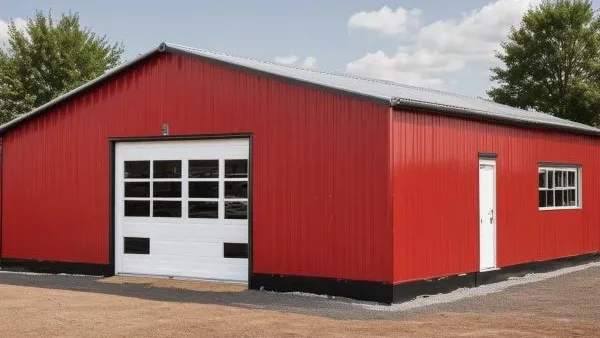
Flexible Layouts and Room Configurations
One of the main attractions of prefabricated homes in Kerala is the ability to customize layouts and room configurations to meet individual preferences and needs. Whether it’s a compact urban dwelling or a spacious suburban residence, prefab homes can be tailored to include the exact number of rooms, bathrooms, and open spaces desired by the homeowner. Many modular prefab buildings offer flexible floor plans that can be adjusted to suit the available plot size and functional requirements, allowing residents to design their dream home within their budget.
Customizing the layout also means that homeowners can incorporate features such as open-plan living areas, dedicated office spaces, or larger kitchens, providing a layout that aligns with modern lifestyle needs. This level of flexibility in design appeals to families, professionals, and individuals who want functional yet adaptable homes in Kerala’s unique environment.
Interior and Exterior Finishes
In Kerala, the aesthetic preferences of homeowners vary widely, and prefab homes provide a range of customization options for both interiors and exteriors. Homeowners can choose finishes for walls, floors, ceilings, and fixtures, allowing them to achieve the style they desire, from traditional to contemporary. Prefab homes are available with various finishes, from natural wood and stone textures to sleek, modern materials. Container-based homes, for example, can be designed with cladding or external treatments that blend with Kerala’s scenic landscapes while adding a unique, modern look.
Exterior customizations also include roofing styles, window designs, and even landscaping options. These customizable elements enable homeowners to create homes that not only suit their taste but also fit seamlessly into Kerala’s diverse surroundings, from coastal settings to highland regions.
Energy-Efficient and Eco-Friendly Add-Ons
With Kerala’s focus on sustainable living, many prefab homeowners opt for energy-efficient features that reduce environmental impact and utility costs. Prefabricated homes in Kerala can be fitted with eco-friendly additions such as solar panels, energy-saving windows, and insulated walls to minimize heating and cooling needs. Portable cabins and other prefab units can also support rainwater harvesting systems and low-flow fixtures, making them an ideal choice for eco-conscious residents.
These sustainable options not only benefit the environment but also help reduce energy bills, offering a practical and cost-effective way to maintain a comfortable living space. Such customization aligns with Kerala’s commitment to green practices, providing residents with homes that are both efficient and environmentally responsible.
Smart Home Technology Integration
For those interested in modern amenities, prefab homes in Kerala can be customized with smart home technology. Features such as automated lighting, climate control, and security systems can be integrated into the design, offering convenience and improved control over home operations. This is particularly beneficial for working professionals who want a home that supports a connected, tech-driven lifestyle.
Smart home technology also enhances energy efficiency, as residents can manage their appliances remotely, adjusting lighting and temperature to suit their needs. Portable modular units can also be enhanced with smart technology, making them suitable for a range of uses, from offices to vacation rentals.
Additional Structural and Functional Enhancements
Prefabricated homes can also be adapted with additional structural features, such as verandas, balconies, or covered outdoor spaces, to take full advantage of Kerala’s scenic views and pleasant climate. For those looking for a more permanent or spacious setup, extra modules can be added to expand the home over time, allowing for future growth without needing a complete rebuild.
With these extensive customization options, prefabricated homes in Kerala offer an adaptable, sustainable, and personalized housing solution that meets the varied tastes and practical requirements of modern homeowners across the state.
Navigate the complexities of urban construction with our Prefab Homes Mumbai Guide, offering strategies tailored for Mumbai’s unique environment.
Key Considerations When Buying a Prefabricated House in Kerala
Budget Planning and Cost Estimations
One of the most crucial steps when buying a prefabricated home in Kerala is to establish a realistic budget. While prefab homes are generally more affordable than traditional homes, additional costs can arise based on customization, location, and transportation. It’s essential to consider costs associated with site preparation, utility connections, and potential transportation fees if the home will be delivered to a remote location. By thoroughly planning the budget, homeowners can ensure they have accounted for all expenses associated with a modular prefabricated building, ensuring no unexpected financial surprises.
Comparing quotes from various manufacturers can also provide insights into potential costs for the preferred level of customization and finishes, allowing buyers to make informed decisions aligned with their financial capacity.
Understanding Site and Land Requirements
The location and size of the land will impact the type of prefab home that can be installed. For urban areas with limited space, compact and modular units are ideal, while larger plots in suburban or rural regions can accommodate spacious, multi-room layouts. Before buying a prefab home, it’s essential to ensure that the land is prepared for installation. Factors like ground leveling, soil quality, and access to utilities like water, electricity, and sewage systems need to be considered. Container-based homes, for instance, may require minimal land preparation, but larger modular homes might need more site adjustments to ensure a stable foundation.
Considering Kerala’s varied landscapes, including coastal, highland, and rural areas, choosing a prefab home suited to the specific terrain is essential for optimal durability and stability.
Compliance with Local Regulations and Building Codes
Kerala’s local regulations and building codes must be adhered to when installing a prefab home. Different regions may have specific requirements, especially regarding residential and commercial zoning. It is advisable to consult with local authorities or the prefab manufacturer to ensure the chosen structure complies with all regulations, avoiding potential legal complications. For example, portable modular units used for commercial purposes might require permits beyond those needed for residential spaces.
Compliance with local codes ensures that the prefab home is safe, legal, and ready for use, allowing homeowners to move forward confidently with their plans.
Choosing the Right Manufacturer and Ensuring Quality Assurance
The quality and durability of a prefab home depend significantly on the manufacturer. Selecting a reputable manufacturer with a track record of producing high-quality, durable homes is crucial. Researching reviews, inspecting sample homes if possible, and discussing warranties with the manufacturer are effective ways to ensure a reliable purchase. Many portable cabins come with warranties that cover materials and structural integrity, providing homeowners with peace of mind and protection against potential defects.
It’s also beneficial to inquire about after-sales support and maintenance services, as this can make a significant difference in the long-term usability and upkeep of the prefab home.
Long-Term Maintenance and Warranty Coverage
Finally, understanding the maintenance requirements and warranty coverage of a prefab home is essential for long-term planning. While prefab homes are generally low-maintenance, periodic checks and upkeep are recommended to ensure the structure remains in good condition. Many prefab manufacturers offer warranties on materials and construction, which can be an advantage for homeowners looking to safeguard their investment. Reviewing the warranty terms, maintenance guidelines, and available after-sales services helps in managing long-term expectations for modular prefabricated units and allows homeowners to make informed decisions.
By carefully considering budget, land requirements, regulatory compliance, manufacturer reputation, and maintenance needs, buyers in Kerala can confidently invest in a prefabricated home that aligns with their lifestyle, location, and financial goals.
For a thorough understanding of prefab housing benefits and features, revisit our PEB Buildings Benefits, Features & Applications page, your go-to resource for all PEB-related information.
Future Outlook for Prefabricated Housing in Kerala
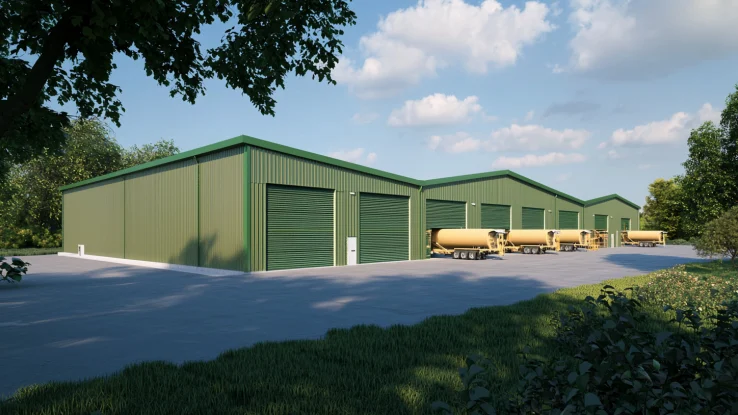
Increasing Popularity Amid Rising Urbanization
As Kerala continues to urbanize, the demand for flexible and efficient housing solutions is set to grow, making prefabricated homes an increasingly popular choice. With limited land availability in major cities like Kochi and Thiruvananthapuram, prefabricated homes offer an ideal solution for creating high-quality living spaces on smaller plots. The quick construction and adaptability of modular prefab buildings appeal to urban developers and residents seeking efficient housing that doesn’t compromise on quality. As Kerala’s cities expand, the adoption of prefab homes is expected to rise, addressing the pressing need for housing in both urban and suburban areas.
Technological Advancements in Prefabrication
The future of prefabricated housing in Kerala will also be shaped by ongoing advancements in construction technology. With innovations like Building Information Modeling (BIM), 3D printing, and smart home integration, prefabricated homes are becoming more sophisticated and customizable. BIM allows manufacturers to create detailed 3D models, ensuring precise and efficient construction. This technology reduces construction errors and enables Kerala residents to visualize and customize their homes with ease. Additionally, the adoption of 3D printing in prefab housing could make it possible to create intricate designs and reduce construction time further.
Incorporating smart home features into container-based modular units is another trend on the rise, providing residents with enhanced control over their living environments, from energy management to security systems. These advancements are expected to make prefab homes even more appealing to tech-savvy and eco-conscious buyers in Kerala.
Growth in Sustainable and Eco-Friendly Prefab Housing
As Kerala continues to prioritize environmental conservation, the demand for sustainable housing options will drive the prefabricated home market. Prefabricated homes are already known for their eco-friendly construction, minimal waste, and energy-efficient designs, aligning well with Kerala’s environmental goals. In the future, we can expect more prefab homes to feature renewable energy solutions such as solar panels, rainwater harvesting systems, and efficient insulation to further reduce environmental impact.
Many portable cabins and prefab units can be outfitted with these green technologies, supporting Kerala’s commitment to sustainable development. This shift towards green building practices positions prefab homes as a viable solution for residents looking to lower their carbon footprint and embrace eco-friendly living.
Expanding Application Across Diverse Sectors
While residential prefab homes are on the rise, the commercial sector in Kerala is also beginning to recognize the advantages of prefabricated buildings. From offices and pop-up shops to educational facilities and healthcare units, prefabricated structures are finding applications in various industries. Portable modular units are particularly useful for businesses and organizations looking for flexible, cost-effective spaces that can be easily relocated or expanded as needed.
In rural areas, prefab homes are also being adopted for tourism purposes, such as eco-friendly lodges and homestays. These versatile applications reflect the growing acceptance and adaptability of prefabricated buildings across Kerala’s diverse economic landscape.
Supportive Government Policies and Infrastructure Development
Government initiatives promoting affordable housing and sustainable construction are likely to support the growth of prefabricated homes in Kerala. Policies focused on green building standards, urban housing solutions, and rural development projects align with the benefits offered by prefab housing, making them a practical solution for both public and private sectors. As Kerala invests in infrastructure and adopts policies that encourage innovative construction practices, prefabricated homes are poised to become a central element in the state’s housing and commercial development landscape.
With a combination of technological advancements, eco-friendly practices, diverse applications, and supportive government policies, the future of prefabricated housing in Kerala looks promising. Prefab homes offer a sustainable, efficient, and customizable solution that meets the state’s evolving needs, making them an ideal choice for the future of Kerala’s urban and rural communities.
Conclusion
Prefabricated homes in Kerala offer a modern, efficient, and environmentally conscious approach to housing, aligning well with the state’s unique needs and values. As urbanization increases and the demand for sustainable living solutions grows, prefab homes stand out as a versatile option that caters to both residential and commercial needs. From cost-effective modular homes in urban centers to eco-friendly cabins in rural areas, the adaptability of prefab homes makes them a valuable addition to Kerala’s housing market.
With advancements in technology, energy-efficient features, and customizable designs, prefabricated homes in Kerala provide a practical and future-ready housing solution for residents who prioritize quality, affordability, and environmental responsibility. To learn more about our commitment to providing high-quality, sustainable prefabricated building solutions, visit our About Us page for additional insights on our values, mission, and the range of products we offer across various regions.
FAQ
1. What is a prefabricated home, and how does it work?
A prefabricated home, or prefab home, is a structure built off-site in sections in a factory setting. These sections are then transported to the home’s final location for quick assembly, making construction faster and often more affordable than traditional methods.
2. Are prefabricated homes durable enough for Kerala’s climate?
Yes, prefab homes are designed to be highly durable and can withstand Kerala’s diverse weather, including heavy rains and humidity. Materials like treated steel, insulated panels, and waterproof finishes enhance resilience in Kerala’s climate.
3. How much does it cost to build a prefab home in Kerala?
The cost of a prefab home in Kerala varies based on size, design, and customization. Generally, prefab homes are more cost-effective than traditional homes due to reduced labor costs and faster assembly times, but prices may vary based on individual preferences.
4. Can I customize the layout and design of my prefab home?
Absolutely. Prefab homes are highly customizable, allowing homeowners to choose their preferred layout, finishes, room configurations, and eco-friendly features. This flexibility lets you design a home suited to your lifestyle and aesthetic preferences.
5. What types of prefab homes are available in Kerala?
Prefab options in Kerala include modular homes, container houses, panel-built homes, and tiny homes. Each type offers unique benefits in terms of cost, size, and durability, allowing homeowners to choose a style that fits their needs and budget.
6. How long does it take to construct a prefab home in Kerala?
Construction timelines for prefab homes are significantly shorter than traditional homes. Once the sections are built off-site, they can typically be assembled within weeks, depending on the home’s size and complexity.
7. Are prefab homes environmentally friendly?
Yes, prefab homes are considered eco-friendly. They generate less waste during construction, use sustainable materials, and often include energy-efficient features like insulation and solar panel compatibility, which reduce their environmental impact.
8. Do I need special permits to build a prefab home in Kerala?
Yes, prefab homes require local permits just like traditional homes. It’s essential to check with local authorities to ensure compliance with zoning regulations and building codes specific to Kerala.
9. How are prefab homes transported to the site in Kerala?
Once constructed, prefab sections are transported via truck to the final site. The modular design of prefab homes allows for efficient transport and quick assembly upon arrival, minimizing on-site disruption.
10. What maintenance is required for a prefab home?
Prefab homes are typically low-maintenance due to durable materials like steel and weather-resistant finishes. Routine checks on insulation, roofing, and fixtures are recommended to ensure long-lasting quality, especially in Kerala’s humid climate.
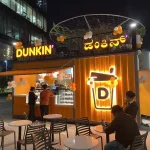 Container Cafe
Container Cafe